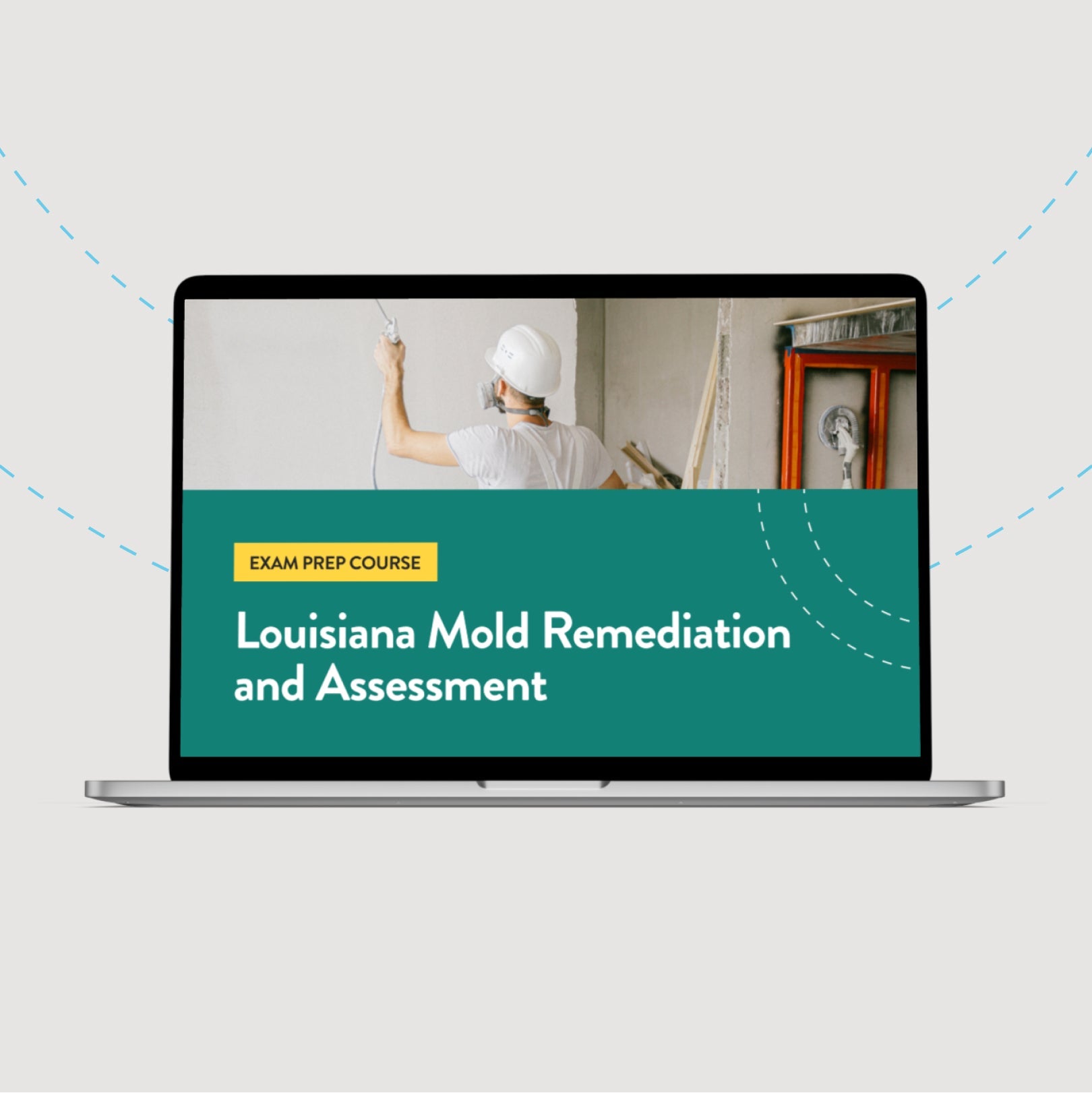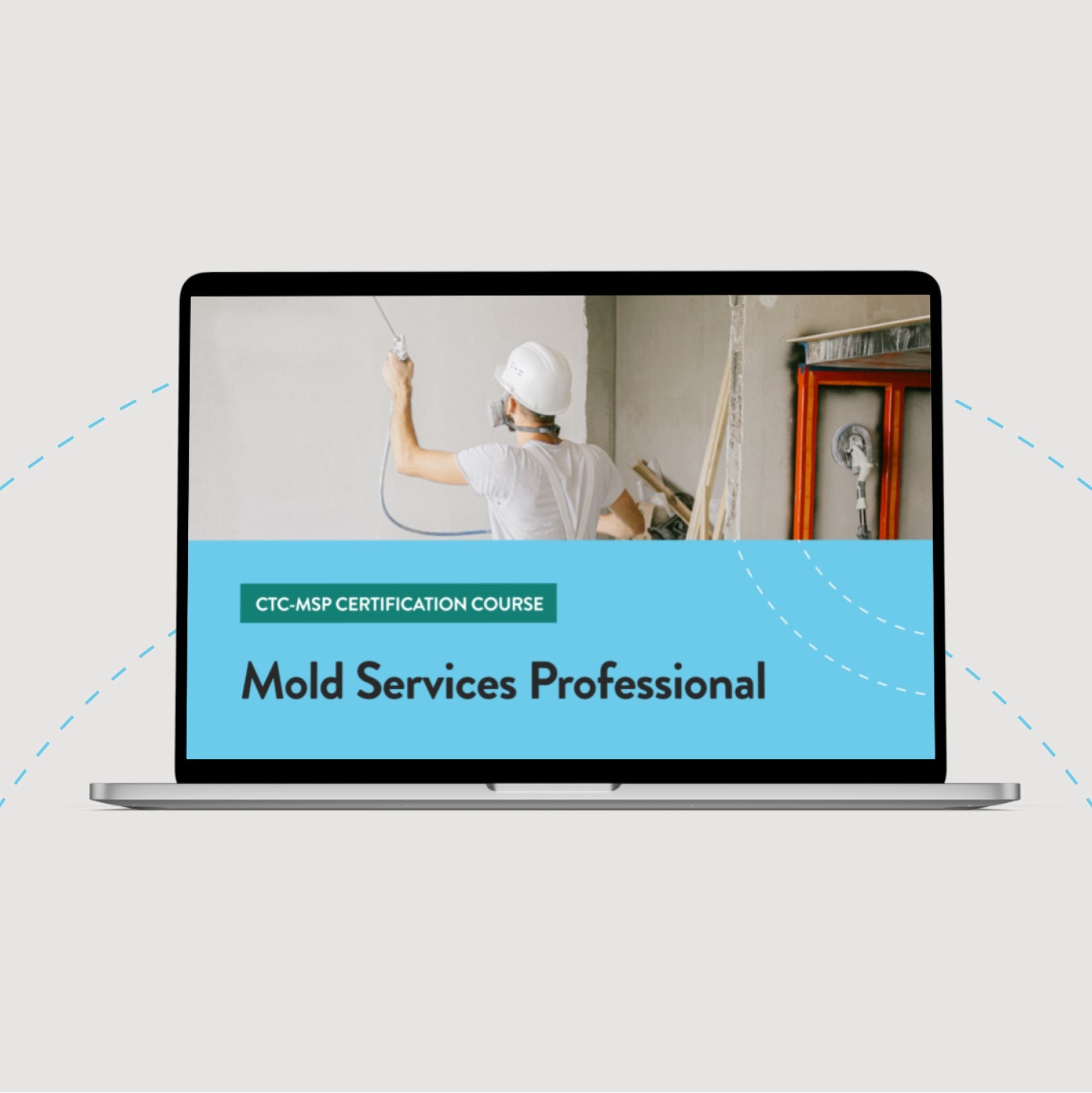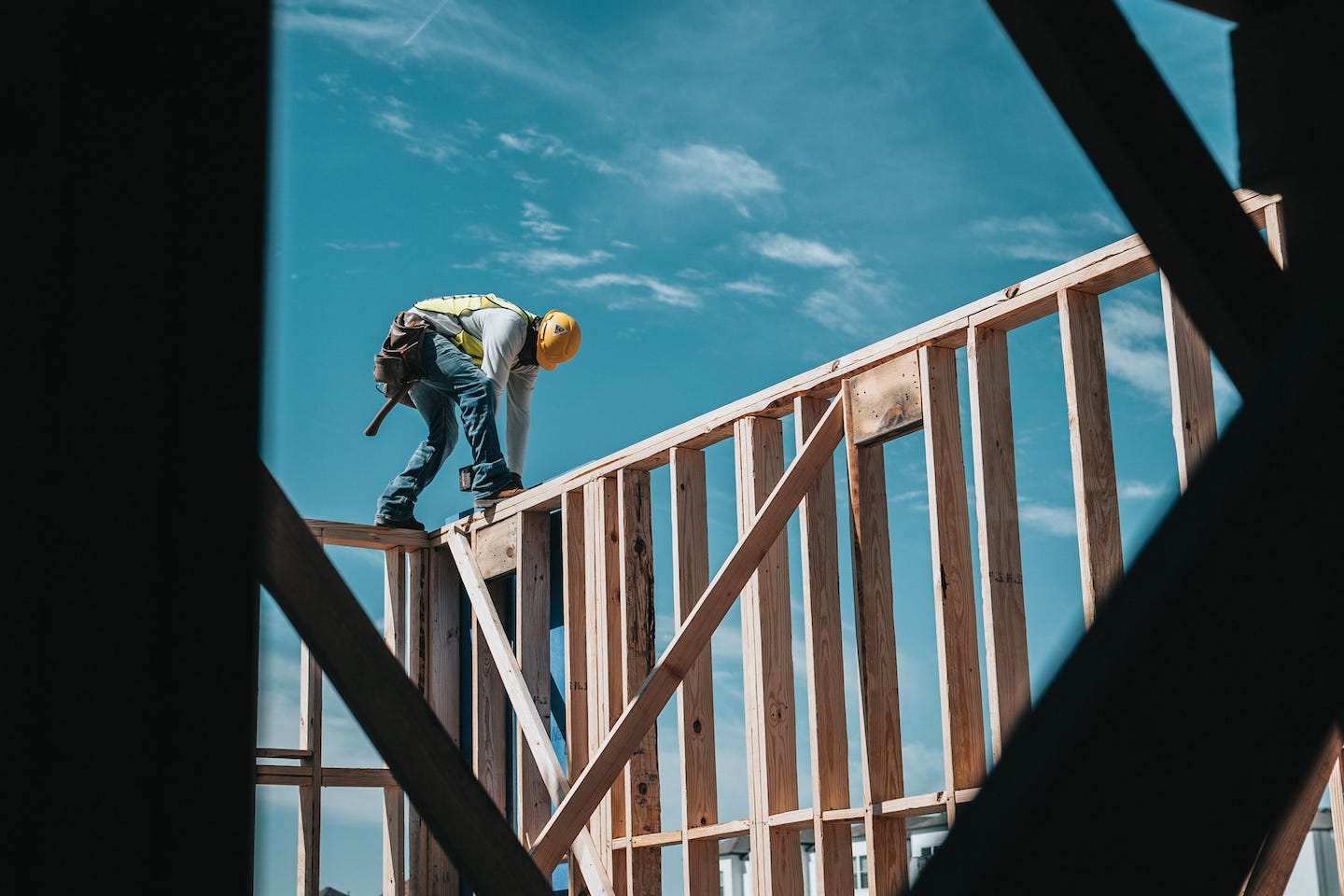<!-- 2025-08-12T09:54:34.6136604Z -->
<style>.shoplift-hide { opacity: 0 !important; }</style>
<style id="sl-preview-bar-hide">#preview-bar-iframe, #PBarNextFrameWrapper { display: none !important; }</style>
<script type="text/javascript">(function(rootPath, template, themeRole, themeId, isThemePreview){ /* Generated on 2026-01-01T02:09:42.7620032Z */var le=Object.defineProperty;var ce=(E,P,V)=>P in E?le(E,P,{enumerable:!0,configurable:!0,writable:!0,value:V}):E[P]=V;var m=(E,P,V)=>ce(E,typeof P!="symbol"?P+"":P,V);(function(){"use strict";var E=document.createElement("style");E.textContent=`#shoplift-preview-control{position:fixed;max-width:332px;height:56px;background-color:#141414;z-index:9999;bottom:20px;display:flex;border-radius:8px;box-shadow:13px 22px 7px #0000,9px 14px 7px #00000003,5px 8px 6px #0000000d,2px 4px 4px #00000017,1px 1px 2px #0000001a,0 0 #0000001a;align-items:center;margin:0 auto;left:16px;right:16px;opacity:0;transform:translateY(20px);visibility:hidden;transition:opacity .4s ease-in-out,transform .4s ease-in-out,visibility 0s .4s}#shoplift-preview-control.visible{opacity:1;transform:translateY(0);visibility:visible;transition:opacity .4s ease-in-out,transform .4s ease-in-out,visibility 0s 0s}#shoplift-preview-control *{font-family:Inter,sans-serif;color:#fff;box-sizing:border-box;font-size:16px}#shoplift-preview-variant-title{font-weight:400;line-height:140%;font-size:16px;text-align:start;letter-spacing:-.16px;flex-grow:1;text-wrap:nowrap;overflow:hidden;text-overflow:ellipsis}#shoplift-preview-variant-selector{position:relative;display:block;padding:6px 0;height:100%;min-width:0;flex:1 1 auto}#shoplift-preview-variant-menu-trigger{border:none;cursor:pointer;width:100%;background-color:transparent;padding:0 16px;border-left:1px solid #333;border-right:1px solid #333;height:100%;display:flex;align-items:center;justify-content:start;gap:8px}#shoplift-preview-variant-selector .menu-variant-label{width:24px;height:24px;border-radius:50%;padding:6px;display:flex;justify-content:center;align-items:center;font-size:12px;font-style:normal;font-weight:600;line-height:100%;letter-spacing:-.12px;flex-shrink:0}#shoplift-preview-variant-selector .preview-variant-menu{position:absolute;bottom:110%;transform:translate3d(0,20px,0);visibility:hidden;pointer-events:none;opacity:0;cursor:pointer;background-color:#141414;border:1px solid #141414;border-radius:6px;width:100%;max-height:156px;overflow-y:auto;box-shadow:0 8px 16px #0003;z-index:1;transition:opacity .3s ease-in-out,transform .3s ease-in-out,visibility 0s .3s}#shoplift-preview-variant-selector .preview-variant-menu.preview-variant-menu__visible{visibility:visible;pointer-events:auto;opacity:100;transform:translateZ(0);transition:opacity .3s ease-in-out,transform .3s ease-in-out,visibility 0s 0s}@media screen and (max-width: 400px){#shoplift-preview-variant-selector .preview-variant-menu{position:fixed;left:0;right:0;width:auto;bottom:110%}}#shoplift-preview-variant-selector .preview-variant-menu .preview-variant-menu--item{padding:12px 16px;display:flex;overflow:hidden}#shoplift-preview-variant-selector .preview-variant-menu .preview-variant-menu--item .menu-variant-label{margin-right:6px}#shoplift-preview-variant-selector .preview-variant-menu .preview-variant-menu--item span{overflow:hidden;text-overflow:ellipsis;text-wrap:nowrap;white-space:nowrap;color:#f6f6f6;font-size:14px;font-style:normal;font-weight:500}#shoplift-preview-variant-selector .preview-variant-menu .preview-variant-menu--item:hover{background-color:#545454}#shoplift-preview-variant-selector .preview-variant-menu .preview-variant-menu--item:last-of-type{border-bottom-left-radius:6px;border-bottom-right-radius:6px}#shoplift-preview-variant-selector .preview-variant-menu .preview-variant-menu--item:first-of-type{border-top-left-radius:6px;border-top-right-radius:6px}#shoplift-preview-control div:has(#shoplift-exit-preview-button){padding:0 16px}#shoplift-exit-preview-button{padding:6px 8px;font-weight:500;line-height:75%;border-radius:4px;background-color:transparent;border:none;text-decoration:none}#shoplift-exit-preview-button:hover{cursor:pointer;background-color:#333}`,document.head.appendChild(E);var P=" daum[ /]| deusu/| yadirectfetcher|(?:^|[^g])news(?!sapphire)|(?<! (?:channel/|google/))google(?!(app|/google| pixel))|(?<! cu)bots?(?:\\b|_)|(?<!(?: ya| yandex|^job|inapp;) ?)search|(?<!(?:lib))http|(?<![hg]m)score|@[a-z][\\w-]+\\.|\\(\\)|\\.com|\\b\\d{13}\\b|^<|^[\\w \\.\\-\\(?:\\):]+(?:/v?\\d+(?:\\.\\d+)?(?:\\.\\d{1,10})*?)?(?:,|$)|^[^ ]{50,}$|^\\d+\\b|^\\w+/[\\w\\(\\)]*$|^active|^ad muncher|^amaya|^avsdevicesdk/|^biglotron|^bot|^bw/|^clamav[ /]|^client/|^cobweb/|^custom|^ddg[_-]android|^discourse|^dispatch/\\d|^downcast/|^duckduckgo|^facebook|^getright/|^gozilla/|^hobbit|^hotzonu|^hwcdn/|^jeode/|^jetty/|^jigsaw|^microsoft bits|^movabletype|^mozilla/\\d\\.\\d \\(compatible;?\\)$|^mozilla/\\d\\.\\d \\w*$|^navermailapp|^netsurf|^offline|^owler|^postman|^python|^rank|^read|^reed|^rest|^rss|^snapchat|^space bison|^svn|^swcd |^taringa|^thumbor/|^track|^valid|^w3c|^webbandit/|^webcopier|^wget|^whatsapp|^wordpress|^xenu link sleuth|^yahoo|^yandex|^zdm/\\d|^zoom marketplace/|^{{.*}}$|admin|analyzer|archive|ask jeeves/teoma|bit\\.ly/|bluecoat drtr|browsex|burpcollaborator|capture|catch|check|chrome-lighthouse|chromeframe|classifier|clean|cloud|crawl|cypress/|dareboost|datanyze|dejaclick|detect|dmbrowser|download|evc-batch/|feed|firephp|gomezagent|headless|httrack|hubspot marketing grader|hydra|ibisbrowser|images|insight|inspect|iplabel|ips-agent|java(?!;)|library|mail\\.ru/|manager|measure|neustar wpm|node|nutch|offbyone|optimize|pageburst|pagespeed|parser|perl|phantomjs|pingdom|powermarks|preview|proxy|ptst[ /]\\d|reputation|resolver|retriever|rexx;|rigor|rss\\b|scan|scrape|server|sogou|sparkler/|speedcurve|spider|splash|statuscake|synapse|synthetic|tools|torrent|trace|transcoder|url|virtuoso|wappalyzer|watch|webglance|webkit2png|whatcms/|zgrab",V=/bot|spider|crawl|http|lighthouse/i,L;function z(){if(L instanceof RegExp)return L;try{L=new RegExp(P,"i")}catch{L=V}return L}function B(c){return!!c&&z().test(c)}class R{constructor(){m(this,"timestamp");this.timestamp=new Date}}class j extends R{constructor(t,i,s){super();m(this,"type");m(this,"testId");m(this,"hypothesisId");this.type=3,this.testId=t,this.hypothesisId=i,this.timestamp=s}}class G extends R{constructor(t){super();m(this,"type");m(this,"path");this.type=4,this.path=t}}class K extends R{constructor(t){super();m(this,"type");m(this,"cart");this.type=5,this.cart=t}}class D extends Error{constructor(){super();m(this,"isBot");this.isBot=!0}}function J(c,e,t){for(const i of e.selectors){const s=c.querySelectorAll(i.cssSelector);for(let r=0;r<s.length;r++)t(e.testId,e.hypothesisId)}q(c,e,(i,s,r,n,o)=>o(s,r),t)}function O(c,e,t){for(const i of e.selectors)M(c,e.testId,e.hypothesisId,i,t??(()=>{}));q(c,e,M,t??(()=>{}))}function W(c){return c.urlPatterns.reduce((e,t)=>{switch(t.operator){case"contains":return e+`.*${t}.*`;case"endsWith":return e+`.*${t}`;case"startsWith":return e+`${t}.*`}},"")}function q(c,e,t,i){new MutationObserver(()=>{for(const r of e.selectors)t(c,e.testId,e.hypothesisId,r,i)}).observe(c.documentElement,{childList:!0,subtree:!0})}function M(c,e,t,i,s){const r=c.querySelectorAll(i.cssSelector);for(let n=0;n<r.length;n++){let o=r.item(n);if(o instanceof HTMLElement&&o.dataset.shoplift!==""){o.dataset.shoplift="";for(const l of i.actions.sort(se))o=Y(c,i.cssSelector,o,l)}}return r.length>0&&s?(s(e,t),!0):!1}function Y(c,e,t,i){switch(i.type){case"innerHtml":t.innerHTML=i.value;break;case"attribute":Z(t,i.scope,i.value);break;case"css":Q(c,e,i.value);break;case"js":X(c,t,i);break;case"copy":return ee(t);case"remove":te(t);break;case"move":ie(t,parseInt(i.value));break}return t}function Z(c,e,t){c.setAttribute(e,t)}function Q(c,e,t){var s;const i=c.createElement("style");i.innerHTML=`${e} { ${t} }`,(s=c.getElementsByTagName("head")[0])==null||s.appendChild(i)}function X(c,e,t){Function("document","element",`"use strict"; ${t.value}`)(c,e)}function ee(c){const e=c.cloneNode(!0);if(!c.parentNode)throw"Can't copy node outside of DOM";return c.parentNode.insertBefore(e,c.nextSibling),e}function te(c){c.remove()}function ie(c,e){if(e===0)return;const t=Array.prototype.slice.call(c.parentElement.children).indexOf(c),i=Math.min(Math.max(t+e,0),c.parentElement.children.length-1);c.parentElement.children.item(i).insertAdjacentElement(e>0?"afterend":"beforebegin",c)}function se(c,e){return H(c)-H(e)}function H(c){return c.type==="copy"||c.type==="remove"?0:1}var x=(c=>(c[c.Template=0]="Template",c[c.Theme=1]="Theme",c[c.UrlRedirect=2]="UrlRedirect",c[c.Script=3]="Script",c[c.Dom=4]="Dom",c[c.Price=5]="Price",c))(x||{});const re="data:image/svg+xml,%3csvg%20width='12'%20height='12'%20viewBox='0%200%2012%2012'%20fill='none'%20xmlns='http://www.w3.org/2000/svg'%3e%3cpath%20d='M9.96001%207.90004C9.86501%207.90004%209.77001%207.86504%209.69501%207.79004L6.43501%204.53004C6.19501%204.29004%205.80501%204.29004%205.56501%204.53004L2.30501%207.79004C2.16001%207.93504%201.92001%207.93504%201.77501%207.79004C1.63001%207.64504%201.63001%207.40504%201.77501%207.26004L5.03501%204.00004C5.56501%203.47004%206.43001%203.47004%206.96501%204.00004L10.225%207.26004C10.37%207.40504%2010.37%207.64504%2010.225%207.79004C10.15%207.86004%2010.055%207.90004%209.96001%207.90004Z'%20fill='white'/%3e%3c/svg%3e",ne="data:image/svg+xml,%3csvg%20width='14'%20height='24'%20viewBox='0%200%2014%2024'%20fill='none'%20xmlns='http://www.w3.org/2000/svg'%3e%3cpath%20d='M12.3976%2014.5255C12.2833%2013.8788%2012.0498%2013.3024%2011.6952%2012.7961C11.3416%2012.2898%2010.9209%2011.8353%2010.4353%2011.4317C9.94868%2011.0291%209.43546%2010.6488%208.89565%2010.292C8.48487%2010.049%208.09577%209.78565%207.72637%209.50402C7.35697%209.2224%207.08016%208.89503%206.89694%208.51987C6.71273%208.14471%206.67826%207.69533%206.79055%207.1697C6.86345%206.83216%206.97476%206.54647%207.12351%206.31162C7.27324%206.07778%207.47124%205.89986%207.7175%205.77684C7.96377%205.65483%208.21989%205.59383%208.48389%205.59383C8.88087%205.59383%209.17639%205.7016%209.3734%205.91714C9.56943%206.13268%209.68271%206.42345%209.71424%206.78946C9.74576%207.15547%209.72015%207.55401%209.63839%207.98509C9.55663%208.41617%209.43645%208.84724%209.27687%209.27934L13.5127%208.80149C13.9638%207.52656%2014.1017%206.42447%2013.9264%205.49725C13.751%204.56901%2013.2664%203.85122%2012.4724%203.34491C12.239%203.19648%2011.9779%203.07041%2011.6893%202.96569L12.0026%201.50979L9.86397%200L7.3875%201.50979L7.11169%202.78878C6.65166%202.8874%206.21724%203.01957%205.8114%203.19038C4.85292%203.594%204.06684%204.15115%203.45117%204.86385C2.83452%205.57655%202.42571%206.40108%202.22378%207.33847C2.06616%208.06947%202.04942%208.70796%202.17551%209.25087C2.30061%209.7948%202.52028%2010.2828%202.8355%2010.7139C3.14974%2011.145%203.51816%2011.5344%203.93977%2011.881C4.36039%2012.2288%204.782%2012.5521%205.20164%2012.851C5.68334%2013.1702%206.13844%2013.5169%206.56497%2013.8921C6.99052%2014.2672%207.31954%2014.7125%207.55004%2015.228C7.78055%2015.7445%207.81502%2016.3769%207.65347%2017.1262C7.56482%2017.5389%207.43676%2017.8765%207.27028%2018.1388C7.10381%2018.4011%206.89596%2018.5983%206.64772%2018.7295C6.3985%2018.8606%206.12071%2018.9267%205.8114%2018.9267C5.21641%2018.9267%204.79776%2018.6034%204.62833%2018.1632C4.4589%2017.7229%204.47367%2017.2583%204.60075%2016.5639C4.72782%2015.8705%205.05092%2015.1395%205.37107%2014.3699H1.17665C1.17665%2014.3699%200.207341%2016.1115%200.0310135%2017.6762C-0.0655232%2018.5302%200.0635208%2019.2653%200.41519%2019.8844C0.76686%2020.5036%201.33032%2020.9814%202.10655%2021.319C2.39222%2021.443%202.7104%2021.5447%203.05813%2021.623L2.54589%2024H7.17473L7.7047%2021.5386C8.08493%2021.442%208.43857%2021.3231%208.76562%2021.1787C9.73985%2020.7476%2010.52%2020.1427%2011.1071%2019.3649C11.6932%2018.5871%2012.0873%2017.7291%2012.2892%2016.7917C12.4744%2015.9295%2012.5099%2015.1741%2012.3966%2014.5275L12.3976%2014.5255Z'%20fill='white'/%3e%3c/svg%3e";async function oe(c){let e=c.replace(/-/g,"+").replace(/_/g,"/");for(;e.length%4;)e+="=";const t=atob(e),i=Uint8Array.from(t,n=>n.charCodeAt(0)),s=new Blob([i]).stream().pipeThrough(new DecompressionStream("gzip")),r=await new Response(s).text();return JSON.parse(r)}function _(c,e){return typeof e=="string"&&/\d{4}-\d{2}-\d{2}T\d{2}:\d{2}:\d{2}.\d+(?:Z|[+-]\d+)/.test(e)?new Date(e):e}function $(c,e){return e}let N=!1;class ae{constructor(e,t,i,s,r,n,o,l,a,h,g){m(this,"DATA_SL_ATTRIBUTE_P","data-sl-attribute-p");m(this,"DATA_SL_TEST_ID","data-sl-test-id");m(this,"VIEWPORT_TRACK_THRESHOLD",.5);m(this,"temporarySessionKey","Shoplift_Session");m(this,"essentialSessionKey","Shoplift_Essential");m(this,"analyticsSessionKey","Shoplift_Analytics");m(this,"legacySessionKey");m(this,"cssHideClass");m(this,"testConfigs");m(this,"inactiveTestConfigs");m(this,"testsFilteredByAudience");m(this,"sendPageView");m(this,"shopliftDebug");m(this,"gaConfig");m(this,"getCountryTimeout");m(this,"state");m(this,"shopifyAnalyticsId");m(this,"cookie",document.cookie);m(this,"isSyncing",!1);m(this,"isSyncingGA",!1);m(this,"fetch");m(this,"localStorageSet");m(this,"localStorageGet");m(this,"sessionStorageSet",window.sessionStorage.setItem.bind(window.sessionStorage));m(this,"sessionStorageGet",window.sessionStorage.getItem.bind(window.sessionStorage));m(this,"urlParams",new URLSearchParams(window.location.search));m(this,"device");m(this,"logHistory");m(this,"activeViewportObservers",new Map);this.shop=e,this.host=t,this.eventHost=i,this.disableReferrerOverride=l,this.logHistory=[],this.legacySessionKey=`SHOPLIFT_SESSION_${this.shop}`,this.cssHideClass=s?"shoplift-hide":"",this.testConfigs=h.map(u=>({...u,startAt:new Date(u.startAt),statusHistory:u.statusHistory.map(w=>({...w,createdAt:new Date(w.createdAt)}))})),this.inactiveTestConfigs=g,this.sendPageView=!!r,this.shopliftDebug=n===!0,this.gaConfig=o!=={"sendEvents":false,"mode":"gtag"}?o:{sendEvents:!1},this.fetch=window.fetch.bind(window),this.localStorageSet=window.localStorage.setItem.bind(window.localStorage),this.localStorageGet=window.localStorage.getItem.bind(window.localStorage);const v=this.getDeviceType();this.device=v!=="tablet"?v:"mobile",this.state=this.loadState(),this.shopifyAnalyticsId=this.getShopifyAnalyticsId(),this.testsFilteredByAudience=h.filter(u=>u.status=="active"),this.getCountryTimeout=a===1000?1e3:a,this.log("State Loaded",JSON.stringify(this.state))}async init(){var e;try{if(this.log("Shoplift script initializing"),window.Shopify&&window.Shopify.designMode){this.log("Skipping script for design mode");return}if(window.location.href.includes("slScreenshot=true")){this.log("Skipping script for screenshot");return}if(window.location.hostname.endsWith(".edgemesh.com")){this.log("Skipping script for preview");return}if(window.location.href.includes("isShopliftMerchant")){const i=this.urlParams.get("isShopliftMerchant")==="true";this.log("Setting merchant session to %s",i),this.state.temporary.isMerchant=i,this.persistTemporaryState()}if(this.state.temporary.isMerchant){this.log("Setting up preview for merchant"),typeof window.shoplift!="object"&&this.setShopliftStub(),this.state.temporary.previewConfig||this.hidePage(),await this.initPreview(),(e=document.querySelector("#sl-preview-bar-hide"))==null||e.remove();return}if(this.state.temporary.previewConfig=void 0,B(navigator.userAgent))return;if(navigator.userAgent.includes("Chrome/118")){this.log("Random: %o",[Math.random(),Math.random(),Math.random()]);const i=await this.makeRequest({url:`${this.eventHost}/api/v0/events/ip`,method:"get"}).then(s=>s==null?void 0:s.json());this.log(`IP: ${i}`),this.makeRequest({url:`${this.eventHost}/api/v0/logs`,method:"post",data:JSON.stringify(this.debugState(),$)}).catch()}if(this.shopifyAnalyticsId=this.getShopifyAnalyticsId(),this.monitorConsentChange(),this.checkForThemePreview())return;if(!this.disableReferrerOverride&&this.state.temporary.originalReferrer!=null){this.log(`Overriding referrer from '${document.referrer}' to '${this.state.temporary.originalReferrer}'`);const i=this.state.temporary.originalReferrer;delete this.state.temporary.originalReferrer,this.persistTemporaryState(),Object.defineProperty(document,"referrer",{get:()=>i,enumerable:!0,configurable:!0})}if(await this.refreshVisitor(this.shopifyAnalyticsId),await this.handleVisitorTest()){this.log("Redirecting for visitor test");return}this.setShoplift(),this.showPage(),await this.ensureCartAttributesForExistingPriceTests(!1),await this.finalize(),console.log("SHOPLIFT SCRIPT INITIALIZED!")}catch(t){if(t instanceof D)return;throw t}finally{typeof window.shoplift!="object"&&this.setShopliftStub()}}getVariantColor(e){switch(e){case"a":return{text:"#141414",bg:"#E2E2E2"};case"b":return{text:"rgba(255, 255, 255, 1)",bg:"rgba(37, 99, 235, 1)"}}}getDefaultVariantTitle(e){return e.title?e.title:e.type==="price"?e.isControl?"Original prices":"Variant prices":e.isControl?"Original":"Untitled variant "+e.label.toUpperCase()}async initPreview(){const e=this.urlParams.get("previewConfig");if(e){this.state.temporary.previewConfig=void 0,this.log("Setting up the preview"),this.log("Found preview config, writing to temporary state");const t=await oe(e);if(this.state.temporary.previewConfig=t,this.state.temporary.previewConfig.testTypeCategory===x.Price){this.hidePage(!0);const s=this.state.temporary.previewConfig;let r=`${this.host}/api/dom-selectors/${s.storeId}/${s.testId}/${s.isDraft||!1}`;s.shopifyProductId&&(r+=`?productId=${s.shopifyProductId}`);const n=await this.makeJsonRequest({method:"get",url:r}).catch(o=>(this.log("Error getting domSelectors",o),null));s.variants.forEach(o=>{var l;return o.domSelectors=(l=n[o.id])==null?void 0:l.domSelectors})}this.persistTemporaryState();const i=new URL(window.location.toString());i.searchParams.delete("previewConfig"),this.queueRedirect(i)}else if(this.state.temporary.previewConfig){this.showPage();const t=this.state.temporary.previewConfig;t.testTypeCategory===x.Template&&this.handleTemplatePreview(t)&&this.initPreviewControls(t),t.testTypeCategory===x.UrlRedirect&&this.handleUrlPreview(t)&&this.initPreviewControls(t),t.testTypeCategory===x.Script&&this.handleScriptPreview(t)&&this.initPreviewControls(t),t.testTypeCategory===x.Price&&await this.handlePricePreview(t)&&this.initPreviewControls(t)}}initPreviewControls(e){document.addEventListener("DOMContentLoaded",()=>{const t=e.variants.find(w=>w.id===e.currentVariant),i=(t==null?void 0:t.label)||"a",s=e.variants,r=document.createElement("div");r.id="shoplift-preview-control";const n=document.createElement("div"),o=document.createElement("img");o.src=ne,o.height=24,o.width=14,n.style.padding="0 16px",n.style.lineHeight="100%",n.appendChild(o),r.appendChild(n);const l=document.createElement("div");l.id="shoplift-preview-variant-selector";const a=document.createElement("button");a.id="shoplift-preview-variant-menu-trigger";const h=document.createElement("div");h.className="menu-variant-label",h.style.backgroundColor=this.getVariantColor(i).bg,h.style.color=this.getVariantColor(i).text,h.innerText=i.toUpperCase(),a.appendChild(h);const g=document.createElement("span");if(g.id="shoplift-preview-variant-title",g.innerText=t?this.getDefaultVariantTitle(t):"Untitled variant "+i.toUpperCase(),a.appendChild(g),s.length>1){const w=document.createElement("img");w.src=re,w.width=12,w.height=12,w.style.height="12px",w.style.width="12px",a.appendChild(w);const C=document.createElement("div");C.className="preview-variant-menu";for(const T of e.variants.filter(k=>k.id!==e.currentVariant)){const k=document.createElement("div");k.className="preview-variant-menu--item";const I=document.createElement("div");I.className="menu-variant-label",I.style.backgroundColor=this.getVariantColor(T.label).bg,I.style.color=this.getVariantColor(T.label).text,I.style.flexShrink="0",I.innerText=T.label.toUpperCase(),k.appendChild(I);const f=document.createElement("span");f.innerText=this.getDefaultVariantTitle(T),k.appendChild(f),k.addEventListener("click",()=>{this.pickVariant(T.id)}),C.appendChild(k)}l.appendChild(C),a.addEventListener("click",()=>{C.className!=="preview-variant-menu preview-variant-menu__visible"?C.classList.add("preview-variant-menu__visible"):C.classList.remove("preview-variant-menu__visible")}),document.addEventListener("click",T=>{T.target instanceof Element&&!a.contains(T.target)&&C.className==="preview-variant-menu preview-variant-menu__visible"&&C.classList.remove("preview-variant-menu__visible")})}else a.style.pointerEvents="none",h.style.margin="0";l.appendChild(a),r.appendChild(l);const v=document.createElement("div"),u=document.createElement("button");u.id="shoplift-exit-preview-button",u.innerText="Exit",v.appendChild(u),u.addEventListener("click",()=>{this.exitPreview()}),r.appendChild(v),document.body.appendChild(r),requestAnimationFrame(()=>{r.classList.add("visible")})}),this.ensureCartAttributesForExistingPriceTests(!0).catch(t=>{this.log("Error ensuring cart attributes for price test",t)})}pickVariant(e){var t,i,s,r;if(this.state.temporary.previewConfig){const n=this.state.temporary.previewConfig,o=new URL(window.location.toString());if(n.testTypeCategory===x.UrlRedirect){const l=(t=n.variants.find(a=>a.id===n.currentVariant))==null?void 0:t.redirectUrl;if(o.pathname===l){const a=(i=n.variants.find(h=>h.id===e))==null?void 0:i.redirectUrl;a&&(o.pathname=a)}}if(n.testTypeCategory===x.Template){const l=(s=n.variants.find(a=>a.id===n.currentVariant))==null?void 0:s.pathName;if(l&&o.pathname===l){const a=(r=n.variants.find(h=>h.id===e))==null?void 0:r.pathName;a&&a!==l&&(o.pathname=a)}}n.currentVariant=e,this.persistTemporaryState(),this.queueRedirect(o)}}exitPreview(){var t,i,s,r;const e=new URL(window.location.toString());if(((t=this.state.temporary.previewConfig)==null?void 0:t.testTypeCategory)===x.Template&&e.searchParams.delete("view"),((i=this.state.temporary.previewConfig)==null?void 0:i.testTypeCategory)===x.Script&&e.searchParams.delete("slVariant"),((s=this.state.temporary.previewConfig)==null?void 0:s.testTypeCategory)===x.UrlRedirect){const o=this.state.temporary.previewConfig.variants.filter(a=>a.label!=="a"&&a.redirectUrl!==null).map(a=>a.redirectUrl),l=(r=this.state.temporary.previewConfig.variants.find(a=>a.label==="a"))==null?void 0:r.redirectUrl;o.includes(e.pathname)&&l&&(e.pathname=l)}this.state.temporary.previewConfig=void 0,this.persistTemporaryState(),this.hidePage(),this.queueRedirect(e)}handleTemplatePreview(e){const t=e.currentVariant,i=e.variants.find(n=>n.id===t);if(!i)return!1;this.log("Setting up template preview for type",i.type);const s=new URL(window.location.toString()),r=s.searchParams.get("view");return this.typeFromTemplate()==i.type&&r!==i.affix&&i.affix&&(this.log("Template type matches current variant, redirecting"),s.searchParams.delete("view"),this.log("Setting the new viewParam"),this.hidePage(),s.searchParams.set("view",i.affix),this.queueRedirect(s)),r!==null&&r!==i.affix&&(s.searchParams.delete("view"),this.hidePage(),this.queueRedirect(s)),!0}handleUrlPreview(e){var n;const t=e.currentVariant,i=e.variants.find(o=>o.id===t),s=(n=e.variants.find(o=>o.isControl))==null?void 0:n.redirectUrl;if(!i)return!1;this.log("Setting up URL redirect preview");const r=new URL(window.location.toString());return r.pathname===s&&!i.isControl&&i.redirectUrl!==null&&(this.log("Url matches control, redirecting"),this.hidePage(),r.pathname=i.redirectUrl,this.queueRedirect(r)),!0}handleScriptPreview(e){const t=e.currentVariant,i=e.variants.find(n=>n.id===t);if(!i)return!1;this.log("Setting up script preview");const s=new URL(window.location.toString());return s.searchParams.get("slVariant")!==i.id&&(this.log("current id doesn't match the variant, redirecting"),s.searchParams.delete("slVariant"),this.log("Setting the new slVariantParam"),this.hidePage(),s.searchParams.set("slVariant",i.id),this.queueRedirect(s)),!0}async handlePricePreview(e){const t=e.currentVariant,i=e.variants.find(s=>s.id===t);return i?(this.log("Setting up price preview"),i.domSelectors&&i.domSelectors.length>0&&(O(document,{testId:e.testId,hypothesisId:i.id,selectors:i.domSelectors}),await this.ensureCartAttributesForExistingPriceTests(!0)),!0):!1}async finalize(){const e=await this.getCartState();e!==null&&this.queueCartUpdate(e),this.pruneStateAndSave(),await this.syncAllEvents()}setShoplift(){this.log("Setting up public API");const t=this.urlParams.get("slVariant")==="true",i=t?null:this.urlParams.get("slVariant");window.shoplift={isHypothesisActive:async s=>{if(this.log("Script checking variant for hypothesis '%s'",s),t)return this.log("Forcing variant for hypothesis '%s'",s),!0;if(i!==null)return this.log("Forcing hypothesis '%s'",i),s===i;const r=this.testConfigs.find(o=>o.hypotheses.some(l=>l.id===s));if(!r)return this.log("No test found for hypothesis '%s'",s),!1;const n=this.state.essential.visitorTests.find(o=>o.testId===r.id);return n?(this.log("Active visitor test found",s),n.hypothesisId===s):(await this.manuallySplitVisitor(r),this.testConfigs.some(o=>o.hypotheses.some(l=>l.id===s&&this.state.essential.visitorTests.some(a=>a.hypothesisId===l.id))))},setAnalyticsConsent:async s=>{await this.onConsentChange(s,!0)},getVisitorData:()=>({visitor:this.state.analytics.visitor,visitorTests:this.state.essential.visitorTests.filter(s=>!s.isInvalid).map(s=>{const{shouldSendToGa:r,...n}=s;return n})})}}setShopliftStub(){this.log("Setting up stubbed public API");const t=this.urlParams.get("slVariant")==="true",i=t?null:this.urlParams.get("slVariant");window.shoplift={isHypothesisActive:s=>Promise.resolve(t||s===i),setAnalyticsConsent:()=>Promise.resolve(),getVisitorData:()=>({visitor:null,visitorTests:[]})}}async manuallySplitVisitor(e){this.log("Starting manual split for test '%s'",e.id),await this.handleVisitorTest([e]),this.saveState(),this.syncAllEvents()}async handleVisitorTest(e){await this.filterTestsByAudience(this.testConfigs,this.state.analytics.visitor??this.buildBaseVisitor(),this.state.essential.visitorTests);let t=e?e.filter(i=>this.testsFilteredByAudience.some(s=>s.id===i.id)):[...this.testsForUrl(this.testsFilteredByAudience),...this.domTestsForUrl(this.testsFilteredByAudience)];t=t.filter(i=>i.hypotheses.some(n=>n.type==="price")?(i.bayesianRevision??4)<5:!0);try{if(t.length===0)return this.log("No tests found"),!1;this.log("Checking for existing visitor test on page");const i=this.getCurrentVisitorHypothesis(t);if(i){this.log("Found current visitor test");const o=this.considerRedirect(i);return o&&(this.log("Redirecting for current visitor test"),this.redirect(i)),o}this.log("No active test relation for test page");const s=this.testsForUrl(this.inactiveTestConfigs.filter(o=>this.testIsPaused(o)&&o.hypotheses.some(l=>this.state.essential.visitorTests.some(a=>a.hypothesisId===l.id)))).map(o=>o.id);if(s.length>0)return this.log("Visitor has paused tests for test page, skipping test assignment: %o",s),!1;if(this.hasThemeAndOtherTestTypes(this.testsFilteredByAudience)){this.log("Store has both theme and non-theme tests");const o=this.visitorActiveTestType();this.log("Current visitor test type is '%s'",o);let l;switch(o){case"templateOrUrlRedirect":this.log("Filtering to non-theme tests"),l=h=>h!=="theme";break;case"theme":this.log("Filtering to theme tests"),l=h=>h==="theme";break;case null:l=Math.random()>.5?(this.log("Filtering to theme tests"),h=>h==="theme"):(this.log("Filtering to non-theme tests"),h=>h!=="theme");break}const a=t.filter(h=>h.hypotheses.every(g=>!g.isControl||!l(g.type)));this.log(`Blocking visitor from being assigned to filtered test IDs: ["${a.map(h=>h.id).join('", "')}"]`),this.state.essential.visitorTests.push(...a.map(h=>({createdAt:new Date,testId:h.id,hypothesisId:null,isThemeTest:h.hypotheses.some(g=>g.type==="theme"),shouldSendToGa:!1,isSaved:!0,isInvalid:!0,themeId:void 0}))),t=t.filter(h=>h.hypotheses.some(g=>g.isControl&&l(g.type)))}if(t.length===0)return this.log("No tests found"),!1;const r=t[Math.floor(Math.random()*t.length)],n=this.pickHypothesis(r);if(n){this.log("Adding local visitor to test '%s', hypothesis '%s'",r.id,n.id),this.queueAddVisitorToTest(r.id,n);const o=this.considerRedirect(n);return o&&(this.log("Redirecting for new test"),this.redirect(n)),o}return this.log("No hypothesis found"),!1}finally{this.includeInDomTests(),this.saveState()}}includeInDomTests(){const e=this.getDomTestsForCurrentUrl(),t=this.getVisitorDomHypothesis(e);for(const i of e){this.log("Evaluating dom test '%s'",i.id);const r=t.find(a=>i.hypotheses.some(h=>a.id===h.id))??this.pickHypothesis(i);if(!r){this.log("Failed to pick hypothesis for test");continue}const n=i.bayesianRevision??4,o=r.type==="price",l=n>=5;if(o&&l){this.log(`Price test with viewport tracking (v${n}): ${i.id}`);const a=i.hypotheses.flatMap(u=>{var w;return((w=u.domSelectors)==null?void 0:w.map(C=>({...C,testId:i.id})))??[]});if(a.length===0)continue;const h=r.isControl?"control":"variant",g=r.domSelectors??[],v=a;this.log(`Setting up viewport tracking for ${h} (test: ${i.id})`),this.log(`Selectors to apply: ${g.length}`),this.log(`Selectors to track: ${v.length}`),this.applyChangesWithViewport(document,{testId:i.id,hypothesisId:r.id,selectors:g,selectorsForViewportTracking:v},u=>{this.queueAddVisitorToTest(u,r),this.saveState(),this.queuePageView(window.location.pathname),this.syncAllEvents()},{threshold:this.VIEWPORT_TRACK_THRESHOLD});continue}if(o&&!l){if(this.log(`Price test without viewport tracking (v${n}): ${i.id}`),!r.domSelectors||r.domSelectors.length===0)continue;O(document,{testId:i.id,hypothesisId:r.id,selectors:r.domSelectors},a=>{this.queueAddVisitorToTest(a,r),this.saveState(),this.queuePageView(window.location.pathname),this.syncAllEvents()});continue}if(!r.domSelectors||r.domSelectors.length===0){this.log("No selectors found, skipping hypothesis");continue}O(document,{testId:i.id,hypothesisId:r.id,selectors:r.domSelectors},a=>{this.queueAddVisitorToTest(a,r),this.saveState(),this.queuePageView(window.location.pathname),this.syncAllEvents()})}}considerRedirect(e){if(this.log("Considering redirect for hypothesis '%s'",e.id),e.isControl)return this.log("Skipping redirect for control"),!1;if(e.type==="basicScript"||e.type==="manualScript")return this.log("Skipping redirect for script test"),!1;const t=this.state.essential.visitorTests.find(n=>n.hypothesisId===e.id),i=new URL(window.location.toString()),r=new URLSearchParams(window.location.search).get("view");if(e.type==="theme"){if(!(e.themeId===themeId)){if(this.log("Theme id '%s' is not hypothesis theme ID '%s'",e.themeId,themeId),t&&t.themeId!==e.themeId&&(t.themeId===themeId||!this.isThemePreview()))this.log("On old theme, redirecting and updating local visitor"),t.themeId=e.themeId;else if(this.isThemePreview())return this.log("On non-test theme, skipping redirect"),!1;return this.log("Hiding page to redirect for theme test"),this.hidePage(),!0}return!1}else if(e.type!=="dom"&&e.type!=="price"&&e.affix!==template.suffix&&e.affix!==r||e.redirectPath&&!i.pathname.endsWith(e.redirectPath))return this.log("Hiding page to redirect for template test"),this.hidePage(),!0;return this.log("Not redirecting"),!1}redirect(e){if(this.log("Redirecting to hypothesis '%s'",e.id),e.isControl)return;const t=new URL(window.location.toString());if(t.searchParams.delete("view"),e.redirectPath){const i=RegExp("^(/w{2}-w{2})/").exec(t.pathname);if(i&&i.length>1){const s=i[1];t.pathname=`${s}${e.redirectPath}`}else t.pathname=e.redirectPath}else e.type==="theme"?(t.searchParams.set("_ab","0"),t.searchParams.set("_fd","0"),t.searchParams.set("_sc","1"),t.searchParams.set("preview_theme_id",e.themeId.toString())):e.type!=="urlRedirect"&&t.searchParams.set("view",e.affix);this.queueRedirect(t)}async refreshVisitor(e){if(e===null||!this.state.essential.isFirstLoad||!this.testConfigs.some(i=>i.visitorOption!=="all"))return;this.log("Refreshing visitor"),this.hidePage();const t=await this.getVisitor(e);t&&t.id&&this.updateLocalVisitor(t)}buildBaseVisitor(){return{shopifyAnalyticsId:this.shopifyAnalyticsId,device:this.device,country:null,...this.state.essential.initialState}}getInitialState(){const e=this.getUTMValue("utm_source")??"",t=this.getUTMValue("utm_medium")??"",i=this.getUTMValue("utm_campaign")??"",s=this.getUTMValue("utm_content")??"",r=window.document.referrer,n=this.device;return{createdAt:new Date,utmSource:e,utmMedium:t,utmCampaign:i,utmContent:s,referrer:r,device:n}}checkForThemePreview(){var e,t;return this.log("Checking for theme preview"),window.location.hostname.endsWith(".shopifypreview.com")?(this.log("on shopify preview domain"),this.clearThemeBar(!0,!1,this.state),(e=document.querySelector("#sl-preview-bar-hide"))==null||e.remove(),!1):this.isThemePreview()?this.state.essential.visitorTests.some(i=>i.isThemeTest&&i.hypothesisId!=null&&this.getHypothesis(i.hypothesisId)&&i.themeId===themeId)?(this.log("On active theme test, removing theme bar"),this.clearThemeBar(!1,!0,this.state),!1):this.state.essential.visitorTests.some(i=>i.isThemeTest&&i.hypothesisId!=null&&!this.getHypothesis(i.hypothesisId)&&i.themeId===themeId)?(this.log("Visitor is on an inactive theme test, redirecting to main theme"),this.redirectToMainTheme(),!0):this.state.essential.isFirstLoad?(this.log("No visitor found on theme preview, redirecting to main theme"),this.redirectToMainTheme(),!0):this.inactiveTestConfigs.some(i=>i.hypotheses.some(s=>s.themeId===themeId))?(this.log("Current theme is an inactive theme test, redirecting to main theme"),this.redirectToMainTheme(),!0):this.testConfigs.some(i=>i.hypotheses.some(s=>s.themeId===themeId))?(this.log("Falling back to clearing theme bar"),this.clearThemeBar(!1,!0,this.state),!1):(this.log("No tests on current theme, skipping script"),this.clearThemeBar(!0,!1,this.state),(t=document.querySelector("#sl-preview-bar-hide"))==null||t.remove(),!0):(this.log("Not on theme preview"),this.clearThemeBar(!0,!1,this.state),!1)}redirectToMainTheme(){this.hidePage();const e=new URL(window.location.toString());e.searchParams.set("preview_theme_id",""),this.queueRedirect(e)}testsForUrl(e){const t=new URL(window.location.href),i=this.typeFromTemplate();return e.filter(s=>s.hypotheses.some(r=>r.type!=="dom"&&r.type!=="price"&&(r.isControl&&r.type===i&&r.affix===template.suffix||r.type==="theme"||r.isControl&&r.type==="urlRedirect"&&r.redirectPath&&t.pathname.endsWith(r.redirectPath)||r.type==="basicScript"))&&(s.ignoreTestViewParameterEnforcement||!t.searchParams.has("view")||s.hypotheses.map(r=>r.affix).includes(t.searchParams.get("view")??"")))}domTestsForUrl(e){const t=new URL(window.location.href);return e.filter(i=>i.hypotheses.some(s=>(s.type==="dom"||s.type==="price")&&s.domSelectors&&s.domSelectors.some(r=>new RegExp(W(r)).test(t.toString()))))}async filterTestsByAudience(e,t,i){const s=[];let r=t.country;!r&&e.some(n=>n.requiresCountry&&!i.some(o=>o.testId===n.id))&&(this.log("Hiding page to check geoip"),this.hidePage(),r=await this.makeJsonRequest({method:"get",url:`${this.eventHost}/api/v0/visitors/get-country`,signal:AbortSignal.timeout(this.getCountryTimeout)}).catch(n=>(this.log("Error getting country",n),null)));for(const n of e){if(this.log("Checking audience for test '%s'",n.id),this.state.essential.visitorTests.some(a=>a.testId===n.id&&a.hypothesisId==null)){console.log(`Skipping blocked test '${n.id}'`);continue}const o=this.visitorCreatedDuringTestActive(n.statusHistory);(i.some(a=>a.testId===n.id&&(n.device==="all"||n.device===t.device&&n.device===this.device))||this.isTargetAudience(n,t,o,r))&&(this.log("Visitor is in audience for test '%s'",n.id),s.push(n))}this.testsFilteredByAudience=s}isTargetAudience(e,t,i,s){const r=this.getChannel(t);return(e.device==="all"||e.device===t.device&&e.device===this.device)&&(e.visitorOption==="all"||e.visitorOption==="new"&&i||e.visitorOption==="returning"&&!i)&&(e.targetAudiences.length===0||e.targetAudiences.reduce((n,o)=>n||o.reduce((l,a)=>l&&a(t,i,r,s),!0),!1))}visitorCreatedDuringTestActive(e){let t="";for(const i of e){if(this.state.analytics.visitor!==null&&this.state.analytics.visitor.createdAt<i.createdAt||this.state.essential.initialState.createdAt<i.createdAt)break;t=i.status}return t==="active"}getDomTestsForCurrentUrl(){return this.domTestsForUrl(this.testsFilteredByAudience)}getCurrentVisitorHypothesis(e){return e.flatMap(t=>t.hypotheses).find(t=>t.type!=="dom"&&t.type!=="price"&&this.state.essential.visitorTests.some(i=>i.hypothesisId===t.id))}getVisitorDomHypothesis(e){return e.flatMap(t=>t.hypotheses).filter(t=>(t.type==="dom"||t.type==="price")&&this.state.essential.visitorTests.some(i=>i.hypothesisId===t.id))}getHypothesis(e){return this.testConfigs.filter(t=>t.hypotheses.some(i=>i.id===e)).map(t=>t.hypotheses.find(i=>i.id===e))[0]}hasThemeTest(e){return e.some(t=>t.hypotheses.some(i=>i.type==="theme"))}hasTestThatIsNotThemeTest(e){return e.some(t=>t.hypotheses.some(i=>i.type!=="theme"&&i.type!=="dom"&&i.type!=="price"))}hasThemeAndOtherTestTypes(e){return this.hasThemeTest(e)&&this.hasTestThatIsNotThemeTest(e)}testIsPaused(e){return e.status==="paused"||e.status==="incompatible"||e.status==="suspended"}visitorActiveTestType(){const e=this.state.essential.visitorTests.filter(t=>this.testConfigs.some(i=>i.hypotheses.some(s=>s.id==t.hypothesisId)));return e.length===0?null:e.some(t=>t.isThemeTest)?"theme":"templateOrUrlRedirect"}pickHypothesis(e){let t=Math.random();const i=e.hypotheses.reduce((r,n)=>r+n.visitorCount,0);return e.hypotheses.sort((r,n)=>r.isControl?n.isControl?0:-1:n.isControl?1:0).reduce((r,n)=>{if(r!==null)return r;const l=e.hypotheses.reduce((a,h)=>a&&h.visitorCount>20,!0)?n.visitorCount/i-n.trafficPercentage:0;return t<=n.trafficPercentage-l?n:(t-=n.trafficPercentage,null)},null)}typeFromTemplate(){switch(template.type){case"collection-list":return"collectionList";case"page":return"landing";case"article":case"blog":case"cart":case"collection":case"index":case"product":case"search":return template.type;default:return null}}queueRedirect(e){this.saveState(),this.disableReferrerOverride||(this.log(`Saving temporary referrer override '${document.referrer}'`),this.state.temporary.originalReferrer=document.referrer,this.persistTemporaryState()),window.setTimeout(()=>window.location.assign(e),0),window.setTimeout(()=>void this.syncAllEvents(),2e3)}async syncAllEvents(){const e=async()=>{if(this.isSyncing){window.setTimeout(()=>void(async()=>await e())(),500);return}try{this.isSyncing=!0,this.syncGAEvents(),await this.syncEvents()}finally{this.isSyncing=!1}};await e()}async syncEvents(){var i,s;if(!this.state.essential.consentApproved||!this.shopifyAnalyticsId||this.state.analytics.queue.length===0)return;const e=this.state.analytics.queue.length,t=this.state.analytics.queue.splice(0,e);this.log("Syncing %s events",e);try{const r={shop:this.shop,visitorDetails:{shopifyAnalyticsId:this.shopifyAnalyticsId,device:((i=this.state.analytics.visitor)==null?void 0:i.device)??this.device,country:((s=this.state.analytics.visitor)==null?void 0:s.country)??null,...this.state.essential.initialState},events:this.state.essential.visitorTests.filter(o=>!o.isInvalid&&!o.isSaved&&o.hypothesisId!=null).map(o=>new j(o.testId,o.hypothesisId,o.createdAt)).concat(t)};await this.sendEvents(r);const n=await this.getVisitor(this.shopifyAnalyticsId);n!==null&&this.updateLocalVisitor(n);for(const o of this.state.essential.visitorTests.filter(l=>!l.isInvalid&&!l.isSaved))o.isSaved=!0}catch{this.state.analytics.queue.splice(0,0,...t)}finally{this.saveState()}}syncGAEvents(){if(!this.gaConfig.sendEvents){if(N)return;N=!0,this.log("UseGtag is false — skipping GA Events");return}if(!this.state.essential.consentApproved){this.log("Consent not approved — skipping GA Events");return}if(this.isSyncingGA){this.log("Already syncing GA - skipping GA events");return}const e=this.state.essential.visitorTests.filter(t=>t.shouldSendToGa);e.length!==0&&(this.isSyncingGA=!0,this.log("Syncing %s GA Events",e.length),Promise.allSettled(e.map(t=>this.sendGAEvent(t))).then(()=>this.log("All gtag events sent")).finally(()=>this.isSyncingGA=!1))}sendGAEvent(e){return new Promise(t=>{this.log("Sending GA Event for test %s, hypothesis %s",e.testId,e.hypothesisId);const i=()=>{this.log("GA acknowledged event for hypothesis %s",e.hypothesisId),e.shouldSendToGa=!1,this.persistEssentialState(),t()},s={exp_variant_string:`SL-${e.testId}-${e.hypothesisId}`};this.shopliftDebug&&Object.assign(s,{debug_mode:!0});function r(n,o,l){window.dataLayer=window.dataLayer||[],window.dataLayer.push(arguments)}this.gaConfig.mode==="gtag"?r("event","experience_impression",{...s,event_callback:i}):(window.dataLayer=window.dataLayer||[],window.dataLayer.push({event:"experience_impression",...s,eventCallback:i}))})}updateLocalVisitor(e){var i;let t;({visitorTests:t,...this.state.analytics.visitor}=e);for(const s of this.state.essential.visitorTests.filter(r=>!t.some(n=>n.testId===r.testId)))s.isSaved=!0,s.isInvalid=!0;for(const s of t){const r=this.state.essential.visitorTests.findIndex(o=>o.testId===s.testId);r!==-1?(s.isInvalid=!1,s.shouldSendToGa=((i=this.state.essential.visitorTests.at(r))==null?void 0:i.shouldSendToGa)??!1,this.state.essential.visitorTests.splice(r,1,s)):this.state.essential.visitorTests.push(s)}this.state.analytics.visitor.storedAt=new Date}async getVisitor(e){try{return await this.makeJsonRequest({method:"get",url:`${this.eventHost}/api/v0/visitors/by-key/${this.shop}/${e}`})}catch{return null}}async sendEvents(e){await this.makeRequest({method:"post",url:`${this.eventHost}/api/v0/events`,data:JSON.stringify(e)})}getUTMValue(e){const i=decodeURIComponent(window.location.search.substring(1)).split("&");for(let s=0;s<i.length;s++){const r=i[s].split("=");if(r[0]===e)return r[1]||null}return null}hidePage(e){this.log("Hiding page"),this.cssHideClass&&!window.document.documentElement.classList.contains(this.cssHideClass)&&(window.document.documentElement.classList.add(this.cssHideClass),e||setTimeout(this.removeAsyncHide(this.cssHideClass),2e3))}showPage(){this.cssHideClass&&this.removeAsyncHide(this.cssHideClass)()}getDeviceType(){function e(){let i=!1;return function(s){(/(android|bb\d+|meego).+mobile|avantgo|bada\/|blackberry|blazer|compal|elaine|fennec|hiptop|iemobile|ip(hone|od)|iris|kindle|lge |maemo|midp|mmp|mobile.+firefox|netfront|opera m(ob|in)i|palm( os)?|phone|p(ixi|re)\/|plucker|pocket|psp|series(4|6)0|symbian|treo|up\.(browser|link)|vodafone|wap|windows ce|xda|xiino/i.test(s)||/1207|6310|6590|3gso|4thp|50[1-6]i|770s|802s|a wa|abac|ac(er|oo|s\-)|ai(ko|rn)|al(av|ca|co)|amoi|an(ex|ny|yw)|aptu|ar(ch|go)|as(te|us)|attw|au(di|\-m|r |s )|avan|be(ck|ll|nq)|bi(lb|rd)|bl(ac|az)|br(e|v)w|bumb|bw\-(n|u)|c55\/|capi|ccwa|cdm\-|cell|chtm|cldc|cmd\-|co(mp|nd)|craw|da(it|ll|ng)|dbte|dc\-s|devi|dica|dmob|do(c|p)o|ds(12|\-d)|el(49|ai)|em(l2|ul)|er(ic|k0)|esl8|ez([4-7]0|os|wa|ze)|fetc|fly(\-|_)|g1 u|g560|gene|gf\-5|g\-mo|go(\.w|od)|gr(ad|un)|haie|hcit|hd\-(m|p|t)|hei\-|hi(pt|ta)|hp( i|ip)|hs\-c|ht(c(\-| |_|a|g|p|s|t)|tp)|hu(aw|tc)|i\-(20|go|ma)|i230|iac( |\-|\/)|ibro|idea|ig01|ikom|im1k|inno|ipaq|iris|ja(t|v)a|jbro|jemu|jigs|kddi|keji|kgt( |\/)|klon|kpt |kwc\-|kyo(c|k)|le(no|xi)|lg( g|\/(k|l|u)|50|54|\-[a-w])|libw|lynx|m1\-w|m3ga|m50\/|ma(te|ui|xo)|mc(01|21|ca)|m\-cr|me(rc|ri)|mi(o8|oa|ts)|mmef|mo(01|02|bi|de|do|t(\-| |o|v)|zz)|mt(50|p1|v )|mwbp|mywa|n10[0-2]|n20[2-3]|n30(0|2)|n50(0|2|5)|n7(0(0|1)|10)|ne((c|m)\-|on|tf|wf|wg|wt)|nok(6|i)|nzph|o2im|op(ti|wv)|oran|owg1|p800|pan(a|d|t)|pdxg|pg(13|\-([1-8]|c))|phil|pire|pl(ay|uc)|pn\-2|po(ck|rt|se)|prox|psio|pt\-g|qa\-a|qc(07|12|21|32|60|\-[2-7]|i\-)|qtek|r380|r600|raks|rim9|ro(ve|zo)|s55\/|sa(ge|ma|mm|ms|ny|va)|sc(01|h\-|oo|p\-)|sdk\/|se(c(\-|0|1)|47|mc|nd|ri)|sgh\-|shar|sie(\-|m)|sk\-0|sl(45|id)|sm(al|ar|b3|it|t5)|so(ft|ny)|sp(01|h\-|v\-|v )|sy(01|mb)|t2(18|50)|t6(00|10|18)|ta(gt|lk)|tcl\-|tdg\-|tel(i|m)|tim\-|t\-mo|to(pl|sh)|ts(70|m\-|m3|m5)|tx\-9|up(\.b|g1|si)|utst|v400|v750|veri|vi(rg|te)|vk(40|5[0-3]|\-v)|vm40|voda|vulc|vx(52|53|60|61|70|80|81|83|85|98)|w3c(\-| )|webc|whit|wi(g |nc|nw)|wmlb|wonu|x700|yas\-|your|zeto|zte\-/i.test(s.substr(0,4)))&&(i=!0)}(navigator.userAgent||navigator.vendor),i}function t(){let i=!1;return function(s){(/android|ipad|playbook|silk/i.test(s)||/1207|6310|6590|3gso|4thp|50[1-6]i|770s|802s|a wa|abac|ac(er|oo|s\-)|ai(ko|rn)|al(av|ca|co)|amoi|an(ex|ny|yw)|aptu|ar(ch|go)|as(te|us)|attw|au(di|\-m|r |s )|avan|be(ck|ll|nq)|bi(lb|rd)|bl(ac|az)|br(e|v)w|bumb|bw\-(n|u)|c55\/|capi|ccwa|cdm\-|cell|chtm|cldc|cmd\-|co(mp|nd)|craw|da(it|ll|ng)|dbte|dc\-s|devi|dica|dmob|do(c|p)o|ds(12|\-d)|el(49|ai)|em(l2|ul)|er(ic|k0)|esl8|ez([4-7]0|os|wa|ze)|fetc|fly(\-|_)|g1 u|g560|gene|gf\-5|g\-mo|go(\.w|od)|gr(ad|un)|haie|hcit|hd\-(m|p|t)|hei\-|hi(pt|ta)|hp( i|ip)|hs\-c|ht(c(\-| |_|a|g|p|s|t)|tp)|hu(aw|tc)|i\-(20|go|ma)|i230|iac( |\-|\/)|ibro|idea|ig01|ikom|im1k|inno|ipaq|iris|ja(t|v)a|jbro|jemu|jigs|kddi|keji|kgt( |\/)|klon|kpt |kwc\-|kyo(c|k)|le(no|xi)|lg( g|\/(k|l|u)|50|54|\-[a-w])|libw|lynx|m1\-w|m3ga|m50\/|ma(te|ui|xo)|mc(01|21|ca)|m\-cr|me(rc|ri)|mi(o8|oa|ts)|mmef|mo(01|02|bi|de|do|t(\-| |o|v)|zz)|mt(50|p1|v )|mwbp|mywa|n10[0-2]|n20[2-3]|n30(0|2)|n50(0|2|5)|n7(0(0|1)|10)|ne((c|m)\-|on|tf|wf|wg|wt)|nok(6|i)|nzph|o2im|op(ti|wv)|oran|owg1|p800|pan(a|d|t)|pdxg|pg(13|\-([1-8]|c))|phil|pire|pl(ay|uc)|pn\-2|po(ck|rt|se)|prox|psio|pt\-g|qa\-a|qc(07|12|21|32|60|\-[2-7]|i\-)|qtek|r380|r600|raks|rim9|ro(ve|zo)|s55\/|sa(ge|ma|mm|ms|ny|va)|sc(01|h\-|oo|p\-)|sdk\/|se(c(\-|0|1)|47|mc|nd|ri)|sgh\-|shar|sie(\-|m)|sk\-0|sl(45|id)|sm(al|ar|b3|it|t5)|so(ft|ny)|sp(01|h\-|v\-|v )|sy(01|mb)|t2(18|50)|t6(00|10|18)|ta(gt|lk)|tcl\-|tdg\-|tel(i|m)|tim\-|t\-mo|to(pl|sh)|ts(70|m\-|m3|m5)|tx\-9|up(\.b|g1|si)|utst|v400|v750|veri|vi(rg|te)|vk(40|5[0-3]|\-v)|vm40|voda|vulc|vx(52|53|60|61|70|80|81|83|85|98)|w3c(\-| )|webc|whit|wi(g |nc|nw)|wmlb|wonu|x700|yas\-|your|zeto|zte\-/i.test(s.substr(0,4)))&&(i=!0)}(navigator.userAgent||navigator.vendor),i}return e()?"mobile":t()?"tablet":"desktop"}removeAsyncHide(e){return()=>{e&&window.document.documentElement.classList.remove(e)}}async getCartState(){try{let e=await this.makeJsonRequest({method:"get",url:`${window.location.origin}/cart.js`});return e===null||(e.note===null&&(e=await this.makeJsonRequest({method:"post",url:`${window.location.origin}/cart/update.js`,data:JSON.stringify({note:""})})),e==null)?null:{token:e.token,total_price:e.total_price,total_discount:e.total_discount,currency:e.currency,items_subtotal_price:e.items_subtotal_price,items:e.items.map(t=>({quantity:t.quantity,variant_id:t.variant_id,key:t.key,price:t.price,final_line_price:t.final_line_price,sku:t.sku,product_id:t.product_id}))}}catch(e){return this.log("Error sending cart info",e),null}}async ensureCartAttributesForExistingPriceTests(e){var t;try{if(this.log("Checking visitor assignments for active price tests"),e&&this.state.temporary.previewConfig){const i=this.state.temporary.previewConfig;this.log("Using preview config for merchant:",i.testId);let s="variant";if(i.variants&&i.variants.length>0){const r=i.variants.find(n=>n.id===i.currentVariant);r&&r.isControl&&(s="control")}this.log("Merchant preview - updating hidden inputs:",i.testId,s),this.updatePriceTestHiddenInputs(i.testId,s,!0);return}for(const i of this.state.essential.visitorTests){const s=this.testConfigs.find(n=>n.id===i.testId);if(!s){this.log("Test config not found:",i.testId);continue}const r=s.hypotheses.find(n=>n.id===i.hypothesisId);if(!r||r.type!=="price"){this.log("Skipping non-price hypothesis:",i.hypothesisId);continue}this.log("Found potential price test, validating with server:",i.testId);try{const n=await this.makeJsonRequest({method:"get",url:`${this.eventHost}/api/v0/visitors/price-test/${i.testId}/${(t=this.state.analytics.visitor)==null?void 0:t.id}`});if(!n){this.log("Failed to validate price test with server:",i.testId);continue}if(!n.isActive||!n.isPriceTest||!n.visitorAssigned){this.log("Price test validation failed - Active:",n.isActive,"PriceTest:",n.isPriceTest,"Assigned:",n.visitorAssigned);continue}this.log("Price test validated successfully, updating hidden inputs:",i.testId,n.assignment),this.updatePriceTestHiddenInputs(i.testId,n.assignment,e)}catch(n){this.log("Error validating price test with server:",i.testId,n);const o=r.isControl?"control":"variant";this.updatePriceTestHiddenInputs(i.testId,o,e)}}}catch(i){this.log("Error ensuring cart attributes for existing price tests:",i)}}updatePriceTestHiddenInputs(e,t,i){try{this.cleanupPriceTestObservers();const s=`${e}:${t}:${i?"t":"f"}`,r=f=>{const p=f.getAttribute("data-sl-pid");if(!p)return!0;if(i&&this.state.temporary.previewConfig){const d=this.state.temporary.previewConfig,y=t==="control"?"a":"b",S=d.variants.find(A=>A.label===y);if(!S)return!1;for(const A of S.domSelectors||[]){const U=A.cssSelector.match(/data-sl-attribute-(?:p|cap)="(\d+)"/);if(U){const F=U[1];if(this.log(`Extracted ID from selector: ${F}, comparing to: ${p}`),F===p)return this.log("Product ID match found in preview config:",p,"variant:",S.label),!0}else this.log(`Could not extract ID from selector: ${A.cssSelector}`)}return this.log("No product ID match in preview config for:",p,"variant:",y),!1}const b=this.testConfigs.find(d=>d.id===e);if(!b)return this.log("Test config not found for testId:",e),!1;for(const d of b.hypotheses||[])for(const y of d.domSelectors||[]){const S=y.cssSelector.match(/data-sl-attribute-(?:p|cap)="(\d+)"/);if(S&&S[1]===p)return this.log("Product ID match found:",p,"for test:",e),!0}return this.log("No product ID match for:",p,"in test:",e),!1},n=new Set;let o=!1,l=null;const a=(f,p)=>{if(document.querySelectorAll("[data-sl-attribute-p]").forEach(d=>{if(d instanceof Element&&d.nodeType===Node.ELEMENT_NODE&&d.isConnected&&document.contains(d))try{f.observe(d,{childList:!0,subtree:!0,characterData:!0,characterDataOldValue:!0,attributes:!1})}catch(y){this.log(`Failed to observe element (${p}):`,y)}}),document.body&&document.body.isConnected)try{f.observe(document.body,{childList:!0,subtree:!0,characterData:!0,characterDataOldValue:!0,attributes:!1})}catch(d){this.log(`Failed to observe document.body (${p}):`,d)}},h=(f,p,b,d)=>{const y=f.filter(S=>{const A=S.cssSelector.match(/data-sl-attribute-(?:p|cap)="(\d+)"/);return A&&A[1]===d});this.log(`Applying ${b} DOM selectors, total: ${f.length}, filtered: ${y.length}`),y.length>0&&O(document,{testId:e,hypothesisId:p,selectors:y})},g=(f,p)=>{this.log(`Applying DOM selector changes for product ID: ${f}`),p.disconnect(),o=!0;try{if(i&&this.state.temporary.previewConfig){const b=t==="control"?"a":"b",d=this.state.temporary.previewConfig.variants.find(y=>y.label===b);if(!(d!=null&&d.domSelectors)){this.log(`No DOM selectors found for preview variant: ${b}`);return}h(d.domSelectors,d.id,"preview config",f)}else{const b=this.testConfigs.find(y=>y.id===e);if(!b){this.log(`No test config found for testId: ${e}`);return}const d=b.hypotheses.find(y=>t==="control"?y.isControl:!y.isControl);if(!(d!=null&&d.domSelectors)){this.log(`No DOM selectors found for assignment: ${t}`);return}h(d.domSelectors,d.id,"live config",f)}}finally{l!==null&&clearTimeout(l),l=window.setTimeout(()=>{o=!1,l=null,a(p,"reconnection"),this.log("Re-established innerHTML observer after DOM changes")},50)}},v=new MutationObserver(f=>{if(!o)for(const p of f){if(p.type!=="childList"&&p.type!=="characterData")continue;let b=p.target;p.type==="characterData"&&(b=p.target.parentElement||p.target.parentNode);let d=b,y=d.getAttribute("data-sl-attribute-p");for(;!y&&d.parentElement;)d=d.parentElement,y=d.getAttribute("data-sl-attribute-p");if(!y)continue;const S=d.innerHTML||d.textContent||"";let A="";p.type==="characterData"&&p.oldValue!==null&&(A=p.oldValue),this.log(`innerHTML changed on element with data-sl-attribute-p="${y}"`),A&&this.log(`Previous content: "${A}"`),this.log(`Current content: "${S}"`),g(y,v)}});a(v,"initial setup"),n.add(v);const u=new MutationObserver(f=>{f.forEach(p=>{p.addedNodes.forEach(b=>{if(b.nodeType===Node.ELEMENT_NODE){const d=b;C(d);const y=d.matches('input[name="properties[_slpt]"]')?[d]:d.querySelectorAll('input[name="properties[_slpt]"]');y.length>0&&this.log(`MutationObserver found ${y.length} new hidden input(s)`),y.forEach(S=>{const A=S.getAttribute("data-sl-pid");this.log(`MutationObserver checking new input with data-sl-pid="${A}"`),r(S)?(S.value!==s&&(S.value=s,this.log("Updated newly added hidden input:",s)),T(S)):(S.remove(),this.log("Removed newly added non-matching hidden input for product ID:",S.getAttribute("data-sl-pid")))})}})})});n.add(u);const w=new MutationObserver(f=>{f.forEach(p=>{if(p.type==="attributes"&&p.attributeName==="data-sl-pid"){const b=p.target;if(this.log("AttributeObserver detected data-sl-pid attribute change on:",b.tagName),b.matches('input[name="properties[_slpt]"]')){const d=b,y=p.oldValue,S=d.getAttribute("data-sl-pid");this.log(`data-sl-pid changed from "${y}" to "${S}" - triggering payment placement updates`),r(d)?(d.value!==s&&(d.value=s,this.log("Updated hidden input after data-sl-pid change:",s)),S&&g(S,v),this.log("Re-running payment placement updates after variant change"),C(document.body)):(d.remove(),this.log("Removed non-matching hidden input after data-sl-pid change:",S))}}})});n.add(w);const C=f=>{f.tagName==="SHOPIFY-PAYMENT-TERMS"&&(this.log("MutationObserver found new shopify-payment-terms element"),this.updateShopifyPaymentTerms(e,t));const p=f.querySelectorAll("shopify-payment-terms");p.length>0&&(this.log(`MutationObserver found ${p.length} shopify-payment-terms in added node`),this.updateShopifyPaymentTerms(e,t)),f.tagName==="AFTERPAY-PLACEMENT"&&(this.log("MutationObserver found new afterpay-placement element"),this.updateAfterpayPlacements(e,t,"afterpay"));const b=f.querySelectorAll("afterpay-placement");b.length>0&&(this.log(`MutationObserver found ${b.length} afterpay-placement in added node`),this.updateAfterpayPlacements(e,t,"afterpay")),f.tagName==="SQUARE-PLACEMENT"&&(this.log("MutationObserver found new square-placement element"),this.updateAfterpayPlacements(e,t,"square"));const d=f.querySelectorAll("square-placement");d.length>0&&(this.log(`MutationObserver found ${d.length} square-placement in added node`),this.updateAfterpayPlacements(e,t,"square")),f.tagName==="KLARNA-PLACEMENT"&&(this.log("MutationObserver found new klarna-placement element"),this.updateKlarnaPlacements(e,t));const y=f.querySelectorAll("klarna-placement");y.length>0&&(this.log(`MutationObserver found ${y.length} klarna-placement in added node`),this.updateKlarnaPlacements(e,t))},T=f=>{w.observe(f,{attributes:!0,attributeFilter:["data-sl-pid"],attributeOldValue:!0,subtree:!1});const p=f.getAttribute("data-sl-pid");this.log(`Started AttributeObserver on specific input with data-sl-pid="${p}"`)},k=()=>{const f=document.querySelectorAll('input[name="properties[_slpt]"]');this.log(`Found ${f.length} existing hidden inputs to check`),f.forEach(p=>{const b=p.getAttribute("data-sl-pid");this.log(`Checking existing input with data-sl-pid="${b}"`),r(p)?(p.value=s,this.log("Updated existing hidden input:",s),b&&(this.log("Applying initial DOM selector changes for existing product"),g(b,v)),T(p)):(p.remove(),this.log("Removed non-matching hidden input for product ID:",p.getAttribute("data-sl-pid")))})},I=()=>{document.body?(u.observe(document.body,{childList:!0,subtree:!0}),this.log("Started MutationObserver on document.body"),k(),C(document.body)):document.readyState==="loading"?document.addEventListener("DOMContentLoaded",()=>{document.body&&(u.observe(document.body,{childList:!0,subtree:!0}),this.log("Started MutationObserver after DOMContentLoaded"),k(),C(document.body))}):(this.log("Set timeout on observer"),setTimeout(I,10))};I(),window.__shopliftPriceTestObservers=n,window.__shopliftPriceTestValue=s,this.log("Set up DOM observer for price test hidden inputs")}catch(s){this.log("Error updating price test hidden inputs:",s)}}updateKlarnaPlacements(e,t){this.updatePlacementElements(e,t,"klarna-placement",(i,s)=>{i.setAttribute("data-purchase-amount",s.toString())})}cleanupPriceTestObservers(){const e=window.__shopliftPriceTestObservers;e&&(e.forEach(t=>{t.disconnect()}),e.clear(),this.log("Cleaned up existing price test observers")),delete window.__shopliftPriceTestObservers,delete window.__shopliftPriceTestValue}updateAfterpayPlacements(e,t,i="afterpay"){const s=i==="square"?"square-placement":"afterpay-placement";if(document.querySelectorAll(s).length===0){this.log(`No ${s} elements found on page - early return`);return}this.updatePlacementElements(e,t,s,(n,o)=>{if(i==="afterpay"){const l=(o/100).toFixed(2);n.setAttribute("data-amount",l)}else n.setAttribute("data-amount",o.toString())}),this.log("updateAfterpayPlacements completed")}updatePlacementElements(e,t,i,s){const r=document.querySelectorAll(i);if(r.length===0){this.log(`No ${i} elements found - early return`);return}let n;if(this.state.temporary.isMerchant&&this.state.temporary.previewConfig){const l=t==="control"?"a":"b",a=this.state.temporary.previewConfig.variants.find(h=>h.label===l);if(!(a!=null&&a.domSelectors)){this.log(`No variant found for label ${l} in preview config for ${i}`);return}n=a.domSelectors,this.log(`Using preview config for ${i} in merchant mode, variant: ${l}`)}else{const l=this.testConfigs.find(h=>h.id===e);if(!l){this.log(`No testConfig found for id: ${e} - early return`);return}const a=l.hypotheses.find(h=>t==="control"?h.isControl:!h.isControl);if(!(a!=null&&a.domSelectors)){this.log(`No hypothesis or domSelectors found for assignment: ${t} - early return`);return}n=a.domSelectors}const o=new RegExp(`${this.DATA_SL_ATTRIBUTE_P}=["'](\\d+)["']`);r.forEach(l=>{let a=null;const h=l.parentElement;if(h&&(a=h.querySelector('input[name="properties[_slpt]"]')),a||(a=l.querySelector('input[name="properties[_slpt]"]')),!a){this.log(`No hidden input found for ${i} element`);return}const g=a.getAttribute("data-sl-pid");if(!g){this.log("Hidden input has no data-sl-pid attribute - skipping");return}const v=n.find(T=>{const k=T.cssSelector.match(o);return k&&k[1]===g});if(!v){this.log(`No matching selector found for productId: ${g} - skipping element`);return}const u=v.actions.find(T=>T.scope==="price");if(!(u!=null&&u.value)){this.log("No price action or value found - skipping element");return}const w=parseFloat(u.value.replace(/[^0-9.]/g,""));if(Number.isNaN(w)){this.log(`Invalid price "${u.value}" for product ${g} - skipping`);return}const C=Math.round(w*100);s(l,C)}),this.log(`updatePlacementElements completed for ${i}`)}updateShopifyPaymentTerms(e,t){const i=document.querySelectorAll("shopify-payment-terms");if(i.length===0)return;this.log("Store using shopify payments");let s;if(this.state.temporary.isMerchant&&this.state.temporary.previewConfig){const n=t==="control"?"a":"b",o=this.state.temporary.previewConfig.variants.find(l=>l.label===n);if(!o||!o.domSelectors){this.log(`No variant found for label ${n} in preview config`);return}s=o.domSelectors,this.log(`Using preview config for shopify-payment-terms in merchant mode, variant: ${n}`)}else{const n=this.testConfigs.find(l=>l.id===e);if(!n)return;const o=n.hypotheses.find(l=>t==="control"?l.isControl===!0:l.isControl===!1);if(!o||!o.domSelectors)return;s=o.domSelectors}const r=new RegExp(`${this.DATA_SL_ATTRIBUTE_P}=["'](\\d+)["']`);i.forEach(n=>{const o=n.getAttribute("variant-id");if(!o)return;const l=s.find(a=>{const h=a.cssSelector.match(r);return h&&h[1]===o});if(l){const a=l.actions.find(h=>h.scope==="price");if(a&&a.value){const h=n.getAttribute("shopify-meta");if(h)try{const g=JSON.parse(h);if(g.variants&&Array.isArray(g.variants)){const v=g.variants.find(u=>{var w;return((w=u.id)==null?void 0:w.toString())===o});if(v){v.full_price=a.value;const u=parseFloat(a.value.replace(/[^0-9.]/g,""));if(v.number_of_payment_terms&&v.number_of_payment_terms>1){const w=u/v.number_of_payment_terms;v.price_per_term=`$${w.toFixed(2)}`}n.setAttribute("shopify-meta",JSON.stringify(g))}}}catch(g){this.log("Error parsing/updating shoplift-meta:",g)}}}})}async makeJsonRequest(e){const t=await this.makeRequest(e);return t===null?null:JSON.parse(await t.text(),_)}async makeRequest(e){const{url:t,method:i,headers:s,data:r,signal:n}=e,o=new Headers;if(s)for(const a in s)o.append(a,s[a]);(!s||!s.Accept)&&o.append("Accept","application/json"),(!s||!s["Content-Type"])&&o.append("Content-Type","application/json"),(this.eventHost.includes("ngrok.io")||this.eventHost.includes("ngrok-free.app"))&&o.append("ngrok-skip-browser-warning","1234");const l=await this.fetch(t,{method:i,headers:o,body:r,signal:n});if(!l.ok){if(l.status===204)return null;if(l.status===422){const a=await l.json();if(typeof a<"u"&&a.isBot)throw new D}throw new Error(`Error sending shoplift request ${l.status}`)}return l}queueAddVisitorToTest(e,t){if(!this.state.essential.visitorTests.some(i=>i.testId===e)&&(this.state.essential.visitorTests.push({createdAt:new Date,testId:e,hypothesisId:t.id,isThemeTest:t.type==="theme",themeId:t.themeId,isSaved:!1,isInvalid:!1,shouldSendToGa:!0}),t.type==="price")){const i=t.isControl?"control":"variant";this.log("Price test assignment detected, updating cart attributes:",e,i),this.updatePriceTestHiddenInputs(e,i,!1)}}queueCartUpdate(e){this.queueEvent(new K(e))}queuePageView(e){this.queueEvent(new G(e))}queueEvent(e){!this.state.essential.consentApproved&&this.state.essential.hasConsentInteraction||this.state.analytics.queue.length>10||this.state.analytics.queue.push(e)}legacyGetLocalStorageVisitor(){const e=this.localStorageGet(this.legacySessionKey);if(e)try{return JSON.parse(e,_)}catch{}return null}pruneStateAndSave(){this.state.essential.visitorTests=this.state.essential.visitorTests.filter(e=>this.testConfigs.some(t=>t.id==e.testId)||this.inactiveTestConfigs.filter(t=>this.testIsPaused(t)).some(t=>t.id===e.testId)),this.saveState()}saveState(){this.persistEssentialState(),this.persistAnalyticsState()}loadState(){const e=this.loadAnalyticsState(),t={analytics:e,essential:this.loadEssentialState(e),temporary:this.loadTemporaryState()},i=this.legacyGetLocalStorageVisitor(),s=this.legacyGetCookieVisitor(),r=[i,s].filter(n=>n!==null).sort((n,o)=>+o.storedAt-+n.storedAt)[0];return t.analytics.visitor===null&&r&&({visitorTests:t.essential.visitorTests,...t.analytics.visitor}=r,t.essential.isFirstLoad=!1,t.essential.initialState={createdAt:r.createdAt,referrer:r.referrer,utmCampaign:r.utmCampaign,utmContent:r.utmContent,utmMedium:r.utmMedium,utmSource:r.utmSource,device:r.device},this.deleteCookie("SHOPLIFT"),this.deleteLocalStorage(this.legacySessionKey)),!t.essential.consentApproved&&t.essential.hasConsentInteraction&&this.deleteLocalStorage(this.analyticsSessionKey),t}loadEssentialState(e){var o;const t=this.loadLocalStorage(this.essentialSessionKey),i=this.loadCookie(this.essentialSessionKey),s=this.getInitialState();(o=e.visitor)!=null&&o.device&&(s.device=e.visitor.device);const r={timestamp:new Date,consentApproved:!1,hasConsentInteraction:!1,debugMode:!1,initialState:s,visitorTests:[],isFirstLoad:!0},n=[t,i].filter(l=>l!==null).sort((l,a)=>+a.timestamp-+l.timestamp)[0]??r;return n.initialState||(e.visitor!==null?n.initialState=e.visitor:(n.initialState=s,n.initialState.createdAt=n.timestamp)),n}loadAnalyticsState(){const e=this.loadLocalStorage(this.analyticsSessionKey),t=this.loadCookie(this.analyticsSessionKey),i={timestamp:new Date,visitor:null,queue:[]},s=[e,t].filter(r=>r!==null).sort((r,n)=>+n.timestamp-+r.timestamp)[0]??i;return s.queue.length===0&&e&&e.queue.length>1&&(s.queue=e.queue),s}loadTemporaryState(){const e=this.sessionStorageGet(this.temporarySessionKey),t=e?JSON.parse(e,_):null,i=this.loadCookie(this.temporarySessionKey);return t??i??{isMerchant:!1,timestamp:new Date}}persistEssentialState(){this.log("Persisting essential state"),this.state.essential.isFirstLoad=!1,this.state.essential.timestamp=new Date,this.persistLocalStorageState(this.essentialSessionKey,this.state.essential),this.persistCookieState(this.essentialSessionKey,this.state.essential)}persistAnalyticsState(){this.log("Persisting analytics state"),this.state.essential.consentApproved&&(this.state.analytics.timestamp=new Date,this.persistLocalStorageState(this.analyticsSessionKey,this.state.analytics),this.persistCookieState(this.analyticsSessionKey,{...this.state.analytics,queue:[]}))}persistTemporaryState(){this.log("Setting temporary session state"),this.state.temporary.timestamp=new Date,this.sessionStorageSet(this.temporarySessionKey,JSON.stringify(this.state.temporary)),this.persistCookieState(this.temporarySessionKey,this.state.temporary,!0)}loadLocalStorage(e){const t=this.localStorageGet(e);if(t===null)return null;try{return JSON.parse(t,_)}catch{return null}}loadCookie(e){const t=this.getCookie(e);if(t===null)return null;try{return JSON.parse(t,_)}catch{return null}}persistLocalStorageState(e,t){this.localStorageSet(e,JSON.stringify(t))}persistCookieState(e,t,i=!1){const s=JSON.stringify(t),r=i?"":`expires=${new Date(new Date().getTime()+864e5*365).toUTCString()};`;document.cookie=`${e}=${s};domain=.${window.location.hostname};path=/;SameSite=Strict;${r}`}deleteCookie(e){const t=new Date(0).toUTCString();document.cookie=`${e}=;domain=.${window.location.hostname};path=/;expires=${t};`}deleteLocalStorage(e){window.localStorage.removeItem(e)}getChannel(e){var i;return((i=[{"name":"cross-network","test":(v) => new RegExp(".*cross-network.*", "i").test(v.utmCampaign)},{"name":"direct","test":(v) => v.utmSource === "" && v.utmMedium === ""},{"name":"paid-shopping","test":(v) => (new RegExp("^(?:Google|IGShopping|aax-us-east\.amazon-adsystem\.com|aax\.amazon-adsystem\.com|alibaba|alibaba\.com|amazon|amazon\.co\.uk|amazon\.com|apps\.shopify\.com|checkout\.shopify\.com|checkout\.stripe\.com|cr\.shopping\.naver\.com|cr2\.shopping\.naver\.com|ebay|ebay\.co\.uk|ebay\.com|ebay\.com\.au|ebay\.de|etsy|etsy\.com|m\.alibaba\.com|m\.shopping\.naver\.com|mercadolibre|mercadolibre\.com|mercadolibre\.com\.ar|mercadolibre\.com\.mx|message\.alibaba\.com|msearch\.shopping\.naver\.com|nl\.shopping\.net|no\.shopping\.net|offer\.alibaba\.com|one\.walmart\.com|order\.shopping\.yahoo\.co\.jp|partners\.shopify\.com|s3\.amazonaws\.com|se\.shopping\.net|shop\.app|shopify|shopify\.com|shopping\.naver\.com|shopping\.yahoo\.co\.jp|shopping\.yahoo\.com|shopzilla|shopzilla\.com|simplycodes\.com|store\.shopping\.yahoo\.co\.jp|stripe|stripe\.com|uk\.shopping\.net|walmart|walmart\.com)$", "i").test(v.utmSource) || new RegExp("^(.*(([^a-df-z]|^)shop|shopping).*)$", "i").test(v.utmCampaign)) && new RegExp("^(.*cp.*|ppc|retargeting|paid.*)$", "i").test(v.utmMedium)},{"name":"paid-search","test":(v) => new RegExp("^(?:360\.cn|alice|aol|ar\.search\.yahoo\.com|ask|at\.search\.yahoo\.com|au\.search\.yahoo\.com|auone|avg|babylon|baidu|biglobe|biglobe\.co\.jp|biglobe\.ne\.jp|bing|br\.search\.yahoo\.com|ca\.search\.yahoo\.com|centrum\.cz|ch\.search\.yahoo\.com|cl\.search\.yahoo\.com|cn\.bing\.com|cnn|co\.search\.yahoo\.com|comcast|conduit|daum|daum\.net|de\.search\.yahoo\.com|dk\.search\.yahoo\.com|dogpile|dogpile\.com|duckduckgo|ecosia\.org|email\.seznam\.cz|eniro|es\.search\.yahoo\.com|espanol\.search\.yahoo\.com|exalead\.com|excite\.com|fi\.search\.yahoo\.com|firmy\.cz|fr\.search\.yahoo\.com|globo|go\.mail\.ru|google|google-play|hk\.search\.yahoo\.com|id\.search\.yahoo\.com|in\.search\.yahoo\.com|incredimail|it\.search\.yahoo\.com|kvasir|lens\.google\.com|lite\.qwant\.com|lycos|m\.baidu\.com|m\.naver\.com|m\.search\.naver\.com|m\.sogou\.com|mail\.rambler\.ru|mail\.yandex\.ru|malaysia\.search\.yahoo\.com|msn|msn\.com|mx\.search\.yahoo\.com|najdi|naver|naver\.com|news\.google\.com|nl\.search\.yahoo\.com|no\.search\.yahoo\.com|ntp\.msn\.com|nz\.search\.yahoo\.com|onet|onet\.pl|pe\.search\.yahoo\.com|ph\.search\.yahoo\.com|pl\.search\.yahoo\.com|play\.google\.com|qwant|qwant\.com|rakuten|rakuten\.co\.jp|rambler|rambler\.ru|se\.search\.yahoo\.com|search-results|search\.aol\.co\.uk|search\.aol\.com|search\.google\.com|search\.smt\.docomo\.ne\.jp|search\.ukr\.net|secureurl\.ukr\.net|seznam|seznam\.cz|sg\.search\.yahoo\.com|so\.com|sogou|sogou\.com|sp-web\.search\.auone\.jp|startsiden|startsiden\.no|suche\.aol\.de|terra|th\.search\.yahoo\.com|tr\.search\.yahoo\.com|tut\.by|tw\.search\.yahoo\.com|uk\.search\.yahoo\.com|ukr|us\.search\.yahoo\.com|virgilio|vn\.search\.yahoo\.com|wap\.sogou\.com|webmaster\.yandex\.ru|websearch\.rakuten\.co\.jp|yahoo|yahoo\.co\.jp|yahoo\.com|yandex|yandex\.by|yandex\.com|yandex\.com\.tr|yandex\.fr|yandex\.kz|yandex\.ru|yandex\.ua|yandex\.uz|zen\.yandex\.ru)$", "i").test(v.utmSource) && new RegExp("^(.*cp.*|ppc|retargeting|paid.*)$", "i").test(v.utmMedium)},{"name":"paid-social","test":(v) => new RegExp("^(?:43things|43things\.com|51\.com|5ch\.net|Hatena|ImageShack|academia\.edu|activerain|activerain\.com|activeworlds|activeworlds\.com|addthis|addthis\.com|airg\.ca|allnurses\.com|allrecipes\.com|alumniclass|alumniclass\.com|ameba\.jp|ameblo\.jp|americantowns|americantowns\.com|amp\.reddit\.com|ancestry\.com|anobii|anobii\.com|answerbag|answerbag\.com|answers\.yahoo\.com|aolanswers|aolanswers\.com|apps\.facebook\.com|ar\.pinterest\.com|artstation\.com|askubuntu|askubuntu\.com|asmallworld\.com|athlinks|athlinks\.com|away\.vk\.com|awe\.sm|b\.hatena\.ne\.jp|baby-gaga|baby-gaga\.com|babyblog\.ru|badoo|badoo\.com|bebo|bebo\.com|beforeitsnews|beforeitsnews\.com|bharatstudent|bharatstudent\.com|biip\.no|biswap\.org|bit\.ly|blackcareernetwork\.com|blackplanet|blackplanet\.com|blip\.fm|blog\.com|blog\.feedspot\.com|blog\.goo\.ne\.jp|blog\.naver\.com|blog\.yahoo\.co\.jp|blogg\.no|bloggang\.com|blogger|blogger\.com|blogher|blogher\.com|bloglines|bloglines\.com|blogs\.com|blogsome|blogsome\.com|blogspot|blogspot\.com|blogster|blogster\.com|blurtit|blurtit\.com|bookmarks\.yahoo\.co\.jp|bookmarks\.yahoo\.com|br\.pinterest\.com|brightkite|brightkite\.com|brizzly|brizzly\.com|business\.facebook\.com|buzzfeed|buzzfeed\.com|buzznet|buzznet\.com|cafe\.naver\.com|cafemom|cafemom\.com|camospace|camospace\.com|canalblog\.com|care\.com|care2|care2\.com|caringbridge\.org|catster|catster\.com|cbnt\.io|cellufun|cellufun\.com|centerblog\.net|chat\.zalo\.me|chegg\.com|chicagonow|chicagonow\.com|chiebukuro\.yahoo\.co\.jp|classmates|classmates\.com|classquest|classquest\.com|co\.pinterest\.com|cocolog-nifty|cocolog-nifty\.com|copainsdavant\.linternaute\.com|couchsurfing\.org|cozycot|cozycot\.com|cross\.tv|crunchyroll|crunchyroll\.com|cyworld|cyworld\.com|cz\.pinterest\.com|d\.hatena\.ne\.jp|dailystrength\.org|deluxe\.com|deviantart|deviantart\.com|dianping|dianping\.com|digg|digg\.com|diigo|diigo\.com|discover\.hubpages\.com|disqus|disqus\.com|dogster|dogster\.com|dol2day|dol2day\.com|doostang|doostang\.com|dopplr|dopplr\.com|douban|douban\.com|draft\.blogger\.com|draugiem\.lv|drugs-forum|drugs-forum\.com|dzone|dzone\.com|edublogs\.org|elftown|elftown\.com|epicurious\.com|everforo\.com|exblog\.jp|extole|extole\.com|facebook|facebook\.com|faceparty|faceparty\.com|fandom\.com|fanpop|fanpop\.com|fark|fark\.com|fb|fb\.me|fc2|fc2\.com|feedspot|feministing|feministing\.com|filmaffinity|filmaffinity\.com|flickr|flickr\.com|flipboard|flipboard\.com|folkdirect|folkdirect\.com|foodservice|foodservice\.com|forums\.androidcentral\.com|forums\.crackberry\.com|forums\.imore\.com|forums\.nexopia\.com|forums\.webosnation\.com|forums\.wpcentral\.com|fotki|fotki\.com|fotolog|fotolog\.com|foursquare|foursquare\.com|free\.facebook\.com|friendfeed|friendfeed\.com|fruehstueckstreff\.org|fubar|fubar\.com|gaiaonline|gaiaonline\.com|gamerdna|gamerdna\.com|gather\.com|geni\.com|getpocket\.com|glassboard|glassboard\.com|glassdoor|glassdoor\.com|godtube|godtube\.com|goldenline\.pl|goldstar|goldstar\.com|goo\.gl|gooblog|goodreads|goodreads\.com|google\+|googlegroups\.com|googleplus|govloop|govloop\.com|gowalla|gowalla\.com|gree\.jp|groups\.google\.com|gulli\.com|gutefrage\.net|habbo|habbo\.com|hi5|hi5\.com|hootsuite|hootsuite\.com|houzz|houzz\.com|hoverspot|hoverspot\.com|hr\.com|hu\.pinterest\.com|hubculture|hubculture\.com|hubpages\.com|hyves\.net|hyves\.nl|ibibo|ibibo\.com|id\.pinterest\.com|identi\.ca|ig|imageshack\.com|imageshack\.us|imvu|imvu\.com|in\.pinterest\.com|insanejournal|insanejournal\.com|instagram|instagram\.com|instapaper|instapaper\.com|internations\.org|interpals\.net|intherooms|intherooms\.com|irc-galleria\.net|is\.gd|italki|italki\.com|jammerdirect|jammerdirect\.com|jappy\.com|jappy\.de|kaboodle\.com|kakao|kakao\.com|kakaocorp\.com|kaneva|kaneva\.com|kin\.naver\.com|l\.facebook\.com|l\.instagram\.com|l\.messenger\.com|last\.fm|librarything|librarything\.com|lifestream\.aol\.com|line|line\.me|linkedin|linkedin\.com|listal|listal\.com|listography|listography\.com|livedoor\.com|livedoorblog|livejournal|livejournal\.com|lm\.facebook\.com|lnkd\.in|m\.blog\.naver\.com|m\.cafe\.naver\.com|m\.facebook\.com|m\.kin\.naver\.com|m\.vk\.com|m\.yelp\.com|mbga\.jp|medium\.com|meetin\.org|meetup|meetup\.com|meinvz\.net|meneame\.net|menuism\.com|messages\.google\.com|messages\.yahoo\.co\.jp|messenger|messenger\.com|mix\.com|mixi\.jp|mobile\.facebook\.com|mocospace|mocospace\.com|mouthshut|mouthshut\.com|movabletype|movabletype\.com|mubi|mubi\.com|my\.opera\.com|myanimelist\.net|myheritage|myheritage\.com|mylife|mylife\.com|mymodernmet|mymodernmet\.com|myspace|myspace\.com|netvibes|netvibes\.com|news\.ycombinator\.com|newsshowcase|nexopia|ngopost\.org|niconico|nicovideo\.jp|nightlifelink|nightlifelink\.com|ning|ning\.com|nl\.pinterest\.com|odnoklassniki\.ru|odnoklassniki\.ua|okwave\.jp|old\.reddit\.com|oneworldgroup\.org|onstartups|onstartups\.com|opendiary|opendiary\.com|oshiete\.goo\.ne\.jp|out\.reddit\.com|over-blog\.com|overblog\.com|paper\.li|partyflock\.nl|photobucket|photobucket\.com|pinboard|pinboard\.in|pingsta|pingsta\.com|pinterest|pinterest\.at|pinterest\.ca|pinterest\.ch|pinterest\.cl|pinterest\.co\.kr|pinterest\.co\.uk|pinterest\.com|pinterest\.com\.au|pinterest\.com\.mx|pinterest\.de|pinterest\.es|pinterest\.fr|pinterest\.it|pinterest\.jp|pinterest\.nz|pinterest\.ph|pinterest\.pt|pinterest\.ru|pinterest\.se|pixiv\.net|pl\.pinterest\.com|playahead\.se|plurk|plurk\.com|plus\.google\.com|plus\.url\.google\.com|pocket\.co|posterous|posterous\.com|pro\.homeadvisor\.com|pulse\.yahoo\.com|qapacity|qapacity\.com|quechup|quechup\.com|quora|quora\.com|qzone\.qq\.com|ravelry|ravelry\.com|reddit|reddit\.com|redux|redux\.com|renren|renren\.com|researchgate\.net|reunion|reunion\.com|reverbnation|reverbnation\.com|rtl\.de|ryze|ryze\.com|salespider|salespider\.com|scoop\.it|screenrant|screenrant\.com|scribd|scribd\.com|scvngr|scvngr\.com|secondlife|secondlife\.com|serverfault|serverfault\.com|shareit|sharethis|sharethis\.com|shvoong\.com|sites\.google\.com|skype|skyrock|skyrock\.com|slashdot\.org|slideshare\.net|smartnews\.com|snapchat|snapchat\.com|social|sociallife\.com\.br|socialvibe|socialvibe\.com|spaces\.live\.com|spoke|spoke\.com|spruz|spruz\.com|ssense\.com|stackapps|stackapps\.com|stackexchange|stackexchange\.com|stackoverflow|stackoverflow\.com|stardoll\.com|stickam|stickam\.com|studivz\.net|suomi24\.fi|superuser|superuser\.com|sweeva|sweeva\.com|t\.co|t\.me|tagged|tagged\.com|taggedmail|taggedmail\.com|talkbiznow|talkbiznow\.com|taringa\.net|techmeme|techmeme\.com|tencent|tencent\.com|tiktok|tiktok\.com|tinyurl|tinyurl\.com|toolbox|toolbox\.com|touch\.facebook\.com|tr\.pinterest\.com|travellerspoint|travellerspoint\.com|tripadvisor|tripadvisor\.com|trombi|trombi\.com|trustpilot|tudou|tudou\.com|tuenti|tuenti\.com|tumblr|tumblr\.com|tweetdeck|tweetdeck\.com|twitter|twitter\.com|twoo\.com|typepad|typepad\.com|unblog\.fr|urbanspoon\.com|ushareit\.com|ushi\.cn|vampirefreaks|vampirefreaks\.com|vampirerave|vampirerave\.com|vg\.no|video\.ibm\.com|vk\.com|vkontakte\.ru|wakoopa|wakoopa\.com|wattpad|wattpad\.com|web\.facebook\.com|web\.skype\.com|webshots|webshots\.com|wechat|wechat\.com|weebly|weebly\.com|weibo|weibo\.com|wer-weiss-was\.de|weread|weread\.com|whatsapp|whatsapp\.com|wiki\.answers\.com|wikihow\.com|wikitravel\.org|woot\.com|wordpress|wordpress\.com|wordpress\.org|xanga|xanga\.com|xing|xing\.com|yahoo-mbga\.jp|yammer|yammer\.com|yelp|yelp\.co\.uk|yelp\.com|youroom\.in|za\.pinterest\.com|zalo|zoo\.gr|zooppa|zooppa\.com)$", "i").test(v.utmSource) && new RegExp("^(.*cp.*|ppc|retargeting|paid.*)$", "i").test(v.utmMedium)},{"name":"paid-video","test":(v) => new RegExp("^(?:blog\.twitch\.tv|crackle|crackle\.com|curiositystream|curiositystream\.com|d\.tube|dailymotion|dailymotion\.com|dashboard\.twitch\.tv|disneyplus|disneyplus\.com|fast\.wistia\.net|help\.hulu\.com|help\.netflix\.com|hulu|hulu\.com|id\.twitch\.tv|iq\.com|iqiyi|iqiyi\.com|jobs\.netflix\.com|justin\.tv|m\.twitch\.tv|m\.youtube\.com|music\.youtube\.com|netflix|netflix\.com|player\.twitch\.tv|player\.vimeo\.com|ted|ted\.com|twitch|twitch\.tv|utreon|utreon\.com|veoh|veoh\.com|viadeo\.journaldunet\.com|vimeo|vimeo\.com|wistia|wistia\.com|youku|youku\.com|youtube|youtube\.com)$", "i").test(v.utmSource) && new RegExp("^(.*cp.*|ppc|retargeting|paid.*)$", "i").test(v.utmMedium)},{"name":"display","test":(v) => new RegExp("^(?:display|banner|expandable|interstitial|cpm)$", "i").test(v.utmMedium)},{"name":"paid-other","test":(v) => new RegExp("^(.*cp.*|ppc|retargeting|paid.*)$", "i").test(v.utmMedium)},{"name":"organic-shopping","test":(v) => new RegExp("^(?:360\.cn|alice|aol|ar\.search\.yahoo\.com|ask|at\.search\.yahoo\.com|au\.search\.yahoo\.com|auone|avg|babylon|baidu|biglobe|biglobe\.co\.jp|biglobe\.ne\.jp|bing|br\.search\.yahoo\.com|ca\.search\.yahoo\.com|centrum\.cz|ch\.search\.yahoo\.com|cl\.search\.yahoo\.com|cn\.bing\.com|cnn|co\.search\.yahoo\.com|comcast|conduit|daum|daum\.net|de\.search\.yahoo\.com|dk\.search\.yahoo\.com|dogpile|dogpile\.com|duckduckgo|ecosia\.org|email\.seznam\.cz|eniro|es\.search\.yahoo\.com|espanol\.search\.yahoo\.com|exalead\.com|excite\.com|fi\.search\.yahoo\.com|firmy\.cz|fr\.search\.yahoo\.com|globo|go\.mail\.ru|google|google-play|hk\.search\.yahoo\.com|id\.search\.yahoo\.com|in\.search\.yahoo\.com|incredimail|it\.search\.yahoo\.com|kvasir|lens\.google\.com|lite\.qwant\.com|lycos|m\.baidu\.com|m\.naver\.com|m\.search\.naver\.com|m\.sogou\.com|mail\.rambler\.ru|mail\.yandex\.ru|malaysia\.search\.yahoo\.com|msn|msn\.com|mx\.search\.yahoo\.com|najdi|naver|naver\.com|news\.google\.com|nl\.search\.yahoo\.com|no\.search\.yahoo\.com|ntp\.msn\.com|nz\.search\.yahoo\.com|onet|onet\.pl|pe\.search\.yahoo\.com|ph\.search\.yahoo\.com|pl\.search\.yahoo\.com|play\.google\.com|qwant|qwant\.com|rakuten|rakuten\.co\.jp|rambler|rambler\.ru|se\.search\.yahoo\.com|search-results|search\.aol\.co\.uk|search\.aol\.com|search\.google\.com|search\.smt\.docomo\.ne\.jp|search\.ukr\.net|secureurl\.ukr\.net|seznam|seznam\.cz|sg\.search\.yahoo\.com|so\.com|sogou|sogou\.com|sp-web\.search\.auone\.jp|startsiden|startsiden\.no|suche\.aol\.de|terra|th\.search\.yahoo\.com|tr\.search\.yahoo\.com|tut\.by|tw\.search\.yahoo\.com|uk\.search\.yahoo\.com|ukr|us\.search\.yahoo\.com|virgilio|vn\.search\.yahoo\.com|wap\.sogou\.com|webmaster\.yandex\.ru|websearch\.rakuten\.co\.jp|yahoo|yahoo\.co\.jp|yahoo\.com|yandex|yandex\.by|yandex\.com|yandex\.com\.tr|yandex\.fr|yandex\.kz|yandex\.ru|yandex\.ua|yandex\.uz|zen\.yandex\.ru)$", "i").test(v.utmSource) || new RegExp("^(.*(([^a-df-z]|^)shop|shopping).*)$", "i").test(v.utmCampaign)},{"name":"organic-social","test":(v) => new RegExp("^(?:43things|43things\.com|51\.com|5ch\.net|Hatena|ImageShack|academia\.edu|activerain|activerain\.com|activeworlds|activeworlds\.com|addthis|addthis\.com|airg\.ca|allnurses\.com|allrecipes\.com|alumniclass|alumniclass\.com|ameba\.jp|ameblo\.jp|americantowns|americantowns\.com|amp\.reddit\.com|ancestry\.com|anobii|anobii\.com|answerbag|answerbag\.com|answers\.yahoo\.com|aolanswers|aolanswers\.com|apps\.facebook\.com|ar\.pinterest\.com|artstation\.com|askubuntu|askubuntu\.com|asmallworld\.com|athlinks|athlinks\.com|away\.vk\.com|awe\.sm|b\.hatena\.ne\.jp|baby-gaga|baby-gaga\.com|babyblog\.ru|badoo|badoo\.com|bebo|bebo\.com|beforeitsnews|beforeitsnews\.com|bharatstudent|bharatstudent\.com|biip\.no|biswap\.org|bit\.ly|blackcareernetwork\.com|blackplanet|blackplanet\.com|blip\.fm|blog\.com|blog\.feedspot\.com|blog\.goo\.ne\.jp|blog\.naver\.com|blog\.yahoo\.co\.jp|blogg\.no|bloggang\.com|blogger|blogger\.com|blogher|blogher\.com|bloglines|bloglines\.com|blogs\.com|blogsome|blogsome\.com|blogspot|blogspot\.com|blogster|blogster\.com|blurtit|blurtit\.com|bookmarks\.yahoo\.co\.jp|bookmarks\.yahoo\.com|br\.pinterest\.com|brightkite|brightkite\.com|brizzly|brizzly\.com|business\.facebook\.com|buzzfeed|buzzfeed\.com|buzznet|buzznet\.com|cafe\.naver\.com|cafemom|cafemom\.com|camospace|camospace\.com|canalblog\.com|care\.com|care2|care2\.com|caringbridge\.org|catster|catster\.com|cbnt\.io|cellufun|cellufun\.com|centerblog\.net|chat\.zalo\.me|chegg\.com|chicagonow|chicagonow\.com|chiebukuro\.yahoo\.co\.jp|classmates|classmates\.com|classquest|classquest\.com|co\.pinterest\.com|cocolog-nifty|cocolog-nifty\.com|copainsdavant\.linternaute\.com|couchsurfing\.org|cozycot|cozycot\.com|cross\.tv|crunchyroll|crunchyroll\.com|cyworld|cyworld\.com|cz\.pinterest\.com|d\.hatena\.ne\.jp|dailystrength\.org|deluxe\.com|deviantart|deviantart\.com|dianping|dianping\.com|digg|digg\.com|diigo|diigo\.com|discover\.hubpages\.com|disqus|disqus\.com|dogster|dogster\.com|dol2day|dol2day\.com|doostang|doostang\.com|dopplr|dopplr\.com|douban|douban\.com|draft\.blogger\.com|draugiem\.lv|drugs-forum|drugs-forum\.com|dzone|dzone\.com|edublogs\.org|elftown|elftown\.com|epicurious\.com|everforo\.com|exblog\.jp|extole|extole\.com|facebook|facebook\.com|faceparty|faceparty\.com|fandom\.com|fanpop|fanpop\.com|fark|fark\.com|fb|fb\.me|fc2|fc2\.com|feedspot|feministing|feministing\.com|filmaffinity|filmaffinity\.com|flickr|flickr\.com|flipboard|flipboard\.com|folkdirect|folkdirect\.com|foodservice|foodservice\.com|forums\.androidcentral\.com|forums\.crackberry\.com|forums\.imore\.com|forums\.nexopia\.com|forums\.webosnation\.com|forums\.wpcentral\.com|fotki|fotki\.com|fotolog|fotolog\.com|foursquare|foursquare\.com|free\.facebook\.com|friendfeed|friendfeed\.com|fruehstueckstreff\.org|fubar|fubar\.com|gaiaonline|gaiaonline\.com|gamerdna|gamerdna\.com|gather\.com|geni\.com|getpocket\.com|glassboard|glassboard\.com|glassdoor|glassdoor\.com|godtube|godtube\.com|goldenline\.pl|goldstar|goldstar\.com|goo\.gl|gooblog|goodreads|goodreads\.com|google\+|googlegroups\.com|googleplus|govloop|govloop\.com|gowalla|gowalla\.com|gree\.jp|groups\.google\.com|gulli\.com|gutefrage\.net|habbo|habbo\.com|hi5|hi5\.com|hootsuite|hootsuite\.com|houzz|houzz\.com|hoverspot|hoverspot\.com|hr\.com|hu\.pinterest\.com|hubculture|hubculture\.com|hubpages\.com|hyves\.net|hyves\.nl|ibibo|ibibo\.com|id\.pinterest\.com|identi\.ca|ig|imageshack\.com|imageshack\.us|imvu|imvu\.com|in\.pinterest\.com|insanejournal|insanejournal\.com|instagram|instagram\.com|instapaper|instapaper\.com|internations\.org|interpals\.net|intherooms|intherooms\.com|irc-galleria\.net|is\.gd|italki|italki\.com|jammerdirect|jammerdirect\.com|jappy\.com|jappy\.de|kaboodle\.com|kakao|kakao\.com|kakaocorp\.com|kaneva|kaneva\.com|kin\.naver\.com|l\.facebook\.com|l\.instagram\.com|l\.messenger\.com|last\.fm|librarything|librarything\.com|lifestream\.aol\.com|line|line\.me|linkedin|linkedin\.com|listal|listal\.com|listography|listography\.com|livedoor\.com|livedoorblog|livejournal|livejournal\.com|lm\.facebook\.com|lnkd\.in|m\.blog\.naver\.com|m\.cafe\.naver\.com|m\.facebook\.com|m\.kin\.naver\.com|m\.vk\.com|m\.yelp\.com|mbga\.jp|medium\.com|meetin\.org|meetup|meetup\.com|meinvz\.net|meneame\.net|menuism\.com|messages\.google\.com|messages\.yahoo\.co\.jp|messenger|messenger\.com|mix\.com|mixi\.jp|mobile\.facebook\.com|mocospace|mocospace\.com|mouthshut|mouthshut\.com|movabletype|movabletype\.com|mubi|mubi\.com|my\.opera\.com|myanimelist\.net|myheritage|myheritage\.com|mylife|mylife\.com|mymodernmet|mymodernmet\.com|myspace|myspace\.com|netvibes|netvibes\.com|news\.ycombinator\.com|newsshowcase|nexopia|ngopost\.org|niconico|nicovideo\.jp|nightlifelink|nightlifelink\.com|ning|ning\.com|nl\.pinterest\.com|odnoklassniki\.ru|odnoklassniki\.ua|okwave\.jp|old\.reddit\.com|oneworldgroup\.org|onstartups|onstartups\.com|opendiary|opendiary\.com|oshiete\.goo\.ne\.jp|out\.reddit\.com|over-blog\.com|overblog\.com|paper\.li|partyflock\.nl|photobucket|photobucket\.com|pinboard|pinboard\.in|pingsta|pingsta\.com|pinterest|pinterest\.at|pinterest\.ca|pinterest\.ch|pinterest\.cl|pinterest\.co\.kr|pinterest\.co\.uk|pinterest\.com|pinterest\.com\.au|pinterest\.com\.mx|pinterest\.de|pinterest\.es|pinterest\.fr|pinterest\.it|pinterest\.jp|pinterest\.nz|pinterest\.ph|pinterest\.pt|pinterest\.ru|pinterest\.se|pixiv\.net|pl\.pinterest\.com|playahead\.se|plurk|plurk\.com|plus\.google\.com|plus\.url\.google\.com|pocket\.co|posterous|posterous\.com|pro\.homeadvisor\.com|pulse\.yahoo\.com|qapacity|qapacity\.com|quechup|quechup\.com|quora|quora\.com|qzone\.qq\.com|ravelry|ravelry\.com|reddit|reddit\.com|redux|redux\.com|renren|renren\.com|researchgate\.net|reunion|reunion\.com|reverbnation|reverbnation\.com|rtl\.de|ryze|ryze\.com|salespider|salespider\.com|scoop\.it|screenrant|screenrant\.com|scribd|scribd\.com|scvngr|scvngr\.com|secondlife|secondlife\.com|serverfault|serverfault\.com|shareit|sharethis|sharethis\.com|shvoong\.com|sites\.google\.com|skype|skyrock|skyrock\.com|slashdot\.org|slideshare\.net|smartnews\.com|snapchat|snapchat\.com|social|sociallife\.com\.br|socialvibe|socialvibe\.com|spaces\.live\.com|spoke|spoke\.com|spruz|spruz\.com|ssense\.com|stackapps|stackapps\.com|stackexchange|stackexchange\.com|stackoverflow|stackoverflow\.com|stardoll\.com|stickam|stickam\.com|studivz\.net|suomi24\.fi|superuser|superuser\.com|sweeva|sweeva\.com|t\.co|t\.me|tagged|tagged\.com|taggedmail|taggedmail\.com|talkbiznow|talkbiznow\.com|taringa\.net|techmeme|techmeme\.com|tencent|tencent\.com|tiktok|tiktok\.com|tinyurl|tinyurl\.com|toolbox|toolbox\.com|touch\.facebook\.com|tr\.pinterest\.com|travellerspoint|travellerspoint\.com|tripadvisor|tripadvisor\.com|trombi|trombi\.com|trustpilot|tudou|tudou\.com|tuenti|tuenti\.com|tumblr|tumblr\.com|tweetdeck|tweetdeck\.com|twitter|twitter\.com|twoo\.com|typepad|typepad\.com|unblog\.fr|urbanspoon\.com|ushareit\.com|ushi\.cn|vampirefreaks|vampirefreaks\.com|vampirerave|vampirerave\.com|vg\.no|video\.ibm\.com|vk\.com|vkontakte\.ru|wakoopa|wakoopa\.com|wattpad|wattpad\.com|web\.facebook\.com|web\.skype\.com|webshots|webshots\.com|wechat|wechat\.com|weebly|weebly\.com|weibo|weibo\.com|wer-weiss-was\.de|weread|weread\.com|whatsapp|whatsapp\.com|wiki\.answers\.com|wikihow\.com|wikitravel\.org|woot\.com|wordpress|wordpress\.com|wordpress\.org|xanga|xanga\.com|xing|xing\.com|yahoo-mbga\.jp|yammer|yammer\.com|yelp|yelp\.co\.uk|yelp\.com|youroom\.in|za\.pinterest\.com|zalo|zoo\.gr|zooppa|zooppa\.com)$", "i").test(v.utmSource) || new RegExp("^(?:social|social-network|social-media|sm|social network|social media)$", "i").test(v.utmMedium)},{"name":"organic-video","test":(v) => new RegExp("^(?:blog\.twitch\.tv|crackle|crackle\.com|curiositystream|curiositystream\.com|d\.tube|dailymotion|dailymotion\.com|dashboard\.twitch\.tv|disneyplus|disneyplus\.com|fast\.wistia\.net|help\.hulu\.com|help\.netflix\.com|hulu|hulu\.com|id\.twitch\.tv|iq\.com|iqiyi|iqiyi\.com|jobs\.netflix\.com|justin\.tv|m\.twitch\.tv|m\.youtube\.com|music\.youtube\.com|netflix|netflix\.com|player\.twitch\.tv|player\.vimeo\.com|ted|ted\.com|twitch|twitch\.tv|utreon|utreon\.com|veoh|veoh\.com|viadeo\.journaldunet\.com|vimeo|vimeo\.com|wistia|wistia\.com|youku|youku\.com|youtube|youtube\.com)$", "i").test(v.utmSource) || new RegExp("^(.*video.*)$", "i").test(v.utmMedium)},{"name":"organic-search","test":(v) => new RegExp("^(?:360\.cn|alice|aol|ar\.search\.yahoo\.com|ask|at\.search\.yahoo\.com|au\.search\.yahoo\.com|auone|avg|babylon|baidu|biglobe|biglobe\.co\.jp|biglobe\.ne\.jp|bing|br\.search\.yahoo\.com|ca\.search\.yahoo\.com|centrum\.cz|ch\.search\.yahoo\.com|cl\.search\.yahoo\.com|cn\.bing\.com|cnn|co\.search\.yahoo\.com|comcast|conduit|daum|daum\.net|de\.search\.yahoo\.com|dk\.search\.yahoo\.com|dogpile|dogpile\.com|duckduckgo|ecosia\.org|email\.seznam\.cz|eniro|es\.search\.yahoo\.com|espanol\.search\.yahoo\.com|exalead\.com|excite\.com|fi\.search\.yahoo\.com|firmy\.cz|fr\.search\.yahoo\.com|globo|go\.mail\.ru|google|google-play|hk\.search\.yahoo\.com|id\.search\.yahoo\.com|in\.search\.yahoo\.com|incredimail|it\.search\.yahoo\.com|kvasir|lens\.google\.com|lite\.qwant\.com|lycos|m\.baidu\.com|m\.naver\.com|m\.search\.naver\.com|m\.sogou\.com|mail\.rambler\.ru|mail\.yandex\.ru|malaysia\.search\.yahoo\.com|msn|msn\.com|mx\.search\.yahoo\.com|najdi|naver|naver\.com|news\.google\.com|nl\.search\.yahoo\.com|no\.search\.yahoo\.com|ntp\.msn\.com|nz\.search\.yahoo\.com|onet|onet\.pl|pe\.search\.yahoo\.com|ph\.search\.yahoo\.com|pl\.search\.yahoo\.com|play\.google\.com|qwant|qwant\.com|rakuten|rakuten\.co\.jp|rambler|rambler\.ru|se\.search\.yahoo\.com|search-results|search\.aol\.co\.uk|search\.aol\.com|search\.google\.com|search\.smt\.docomo\.ne\.jp|search\.ukr\.net|secureurl\.ukr\.net|seznam|seznam\.cz|sg\.search\.yahoo\.com|so\.com|sogou|sogou\.com|sp-web\.search\.auone\.jp|startsiden|startsiden\.no|suche\.aol\.de|terra|th\.search\.yahoo\.com|tr\.search\.yahoo\.com|tut\.by|tw\.search\.yahoo\.com|uk\.search\.yahoo\.com|ukr|us\.search\.yahoo\.com|virgilio|vn\.search\.yahoo\.com|wap\.sogou\.com|webmaster\.yandex\.ru|websearch\.rakuten\.co\.jp|yahoo|yahoo\.co\.jp|yahoo\.com|yandex|yandex\.by|yandex\.com|yandex\.com\.tr|yandex\.fr|yandex\.kz|yandex\.ru|yandex\.ua|yandex\.uz|zen\.yandex\.ru)$", "i").test(v.utmSource) || v.utmMedium.toLowerCase() === "organic"},{"name":"referral","test":(v) => new RegExp("^(?:referral|app|link)$", "i").test(v.utmMedium)},{"name":"email","test":(v) => new RegExp("^(?:email|e-mail|e_mail|e mail)$", "i").test(v.utmMedium) || new RegExp("^(?:email|e-mail|e_mail|e mail)$", "i").test(v.utmSource)},{"name":"affiliate","test":(v) => v.utmMedium.toLowerCase() === "affiliate"},{"name":"audio","test":(v) => v.utmMedium.toLowerCase() === "audio"},{"name":"sms","test":(v) => v.utmSource.toLowerCase() === "sms" || v.utmMedium.toLowerCase() === "sms"},{"name":"mobile-push-notification","test":(v) => v.utmSource.toLowerCase() === "firebase" || new RegExp("(?:.*mobile.*|.*notification.*|push$)", "i").test(v.utmMedium)}].find(s=>s.test(e)))==null?void 0:i.name)??"other"}getShopifyAnalyticsId(){return this.getCookie("_shopify_y")}legacyGetCookieVisitor(){const e=this.getCookie("SHOPLIFT");return e===null?null:JSON.parse(e,_)}getCookie(e){const t=this.cookie.split("; ").filter(i=>i.split("=").at(0)===e).at(0);return t===void 0?null:t.split("=").slice(1).join("=")}monitorConsentChange(){document.addEventListener("visitorConsentCollected",e=>void(async()=>await this.onConsentChange(e.detail.analyticsAllowed,!0))()),document.readyState==="loading"?document.addEventListener("DOMContentLoaded",()=>this.loadShopifyConsentApiWithRetry()):this.loadShopifyConsentApiWithRetry()}loadShopifyConsentApiWithRetry(){let e=0;const t=()=>{this.loadShopifyConsentApi()||e++<10&&window.setTimeout(t,100)};t()}loadShopifyConsentApi(){if(window.Shopify){this.log("Loading Shopify features");const e=async()=>{if(!window.Shopify){this.log("Shopify object missing... suddenly?");return}if(window.Shopify.customerPrivacy===void 0){this.log("Shopify CustomerPrivacy api still missing, trying again in 1000ms"),t=window.setTimeout(()=>void(async()=>await e())(),1e3);return}const i=window.Shopify.customerPrivacy.getTrackingConsent();await this.onConsentChange(window.Shopify.customerPrivacy.analyticsProcessingAllowed(),i==="yes")};let t=window.setTimeout(()=>void(async()=>await e())(),5e3);return window.Shopify.loadFeatures([{name:"consent-tracking-api",version:"0.1"}],i=>{(async()=>{if(window.clearTimeout(t),i){this.log("Error loading consent tracking",i);return}await e()})()}),!0}return!1}async onConsentChange(e,t){try{if(this.log("Consent change detected",e,t),this.state.essential.consentApproved=e,this.state.essential.hasConsentInteraction=t,!this.state.essential.consentApproved){this.state.essential.hasConsentInteraction&&(this.state.analytics.queue.length=0),this.saveState();return}this.cookie=document.cookie,this.shopifyAnalyticsId=this.getShopifyAnalyticsId();for(const i of this.state.analytics.queue.filter(s=>s.type===1||s.type===2)){const s=i;s.shopifyAnalyticsId=this.shopifyAnalyticsId}this.saveState(),await this.syncAllEvents()}catch(i){this.log("Error syncing on consent change",i)}}isThemePreview(){return isThemePreview||themeRole!=="main"}clearThemeBar(e,t,i){const s=structuredClone(i);this.log("Looking for theme bar"),this.waitForElement(null,"body").then(r=>this.waitForElement(r,"#preview-bar-iframe, #PBarNextFrameWrapper").then(n=>(this.log("Found theme bar"),t&&(this.log("Removing theme bar"),n.remove()),e?this.makeRequest({url:`${this.eventHost}/api/v0/logs`,method:"post",data:JSON.stringify({...this.debugState(),stateAtEvaluation:s},$)}):Promise.resolve(null)))).catch(r=>console.error(r))}waitForElement(e,t){return new Promise(i=>{const s=document.querySelector(t);if(s){i(s);return}const r=new MutationObserver(n=>{const o=document.querySelector(t);if(o){r.disconnect(),i(o);return}});r.observe(e??document.documentElement,{childList:!0})})}setDebug(e){this.state.essential.debugMode=e,this.saveState()}log(e,...t){this.logHistory.push([`[${new Date().toISOString()}][SL] ${e}`,...t.map(i=>JSON.stringify(i))].join(" ")),!(!this.state.essential.debugMode&&!this.shopliftDebug)&&console.debug(`[SL] ${e}`,...t)}debugState(){return{state:this.state,storage:{essential:this.loadLocalStorage(this.essentialSessionKey),analytics:this.loadLocalStorage(this.analyticsSessionKey)},params:{shop:this.shop,host:this.host,eventHost:this.eventHost,cssHideClass:this.cssHideClass,testConfigs:this.testConfigs,inactiveTestConfigs:this.inactiveTestConfigs,sendPageView:this.sendPageView,isShopifyMerchantCookie:this.getCookie("is_shopify_merchant"),themeId,url:window.location.href,isThemePreview,themeRole,gaConfig:this.gaConfig},logHistory:this.logHistory}}createViewportObserver(e,t={}){const{threshold:i=this.VIEWPORT_TRACK_THRESHOLD,triggerOnce:s=!0}=t,r=new Set;return new IntersectionObserver(n=>{n.forEach(o=>{if(o.isIntersecting&&!r.has(o.target)){const l=o.target,a=l.getAttribute(this.DATA_SL_TEST_ID);a&&(e(a,l),s&&r.add(l))}})},{threshold:i})}applyChangesWithViewport(e,t,i,s){const r=t.selectorsForViewportTracking??t.selectors,n=o=>{if(this.state.essential.visitorTests.some(v=>v.testId===o)||this.activeViewportObservers.has(o))return;const l=[];if(r.forEach(v=>{e.querySelectorAll(v.cssSelector).forEach(w=>l.push(w))}),l.length===0)return;let a=!1;const h=()=>{a||(a=!0,i(o),g.disconnect(),this.activeViewportObservers.delete(o))},g=this.createViewportObserver(()=>{h()},{triggerOnce:!0,...s});this.activeViewportObservers.set(o,g),this.log(`Created viewport observer for test ${o}, observing ${l.length} elements`),l.forEach(v=>{v.setAttribute(this.DATA_SL_TEST_ID,String(o)),g.observe(v)}),setTimeout(()=>{a||l.forEach(v=>{const u=v.getBoundingClientRect(),w=(s==null?void 0:s.threshold)??this.VIEWPORT_TRACK_THRESHOLD,C=Math.min(u.bottom,window.innerHeight)-Math.max(u.top,0),T=Math.min(u.right,window.innerWidth)-Math.max(u.left,0);u.top<window.innerHeight&&u.bottom>0&&u.left<window.innerWidth&&u.right>0&&C>0&&T>0&&C>=u.height*w&&(this.log(`Price element already visible in viewport for test ${o}:`,v),h())})},100)};t.selectors.length>0&&O(e,t,()=>{}),J(e,{testId:t.testId,hypothesisId:t.hypothesisId,selectors:r},o=>{n(o)})}debug(){const e=this.debugState();console.log(JSON.stringify(e,$,2))}}(async function(){window.shopliftInstance||(window.shopliftInstance=new ae("contractor-training-center.myshopify.com","https://app.shoplift.ai","https://events.shoplift.ai",true,false,false,{"sendEvents":false,"mode":"gtag"},false,1000,[{"id":"019b1323-a513-7098-8d4c-a98aca412128","startAt":"2025-12-12T15:17:41.778612Z","requiresCountry":false,"bayesianRevision":5,"device":"all","status":"active","visitorOption":"all","ignoreTestViewParameterEnforcement":false,"statusHistory":[{"status":"active","createdAt":"2025-12-12T15:17:41.782359Z"}],"hypotheses":[{"visitorCount":843,"trafficPercentage":0.5,"title":"National NASCLA Commercial Builder Exam","domSelectors":[],"id":"019b1320-f385-7cf8-90ff-6d31c86e4ce2","type":"urlRedirect","themeId":142143422541,"affix":"","isControl":true,"redirectPath":"/collections/national-nascla"},{"visitorCount":892,"trafficPercentage":0.5,"title":"National NASCLA Commercial Builder Exam","domSelectors":[],"id":"019b1321-1e2a-77f7-bf5d-3d52829aa384","type":"urlRedirect","themeId":142143422541,"affix":"","isControl":false,"redirectPath":"/collections/national-nascla-3"}],"targetAudiences":[],"title":"[CTC] National NASCLA CTA Test (Dec25)"}],[{"id":"d62fd5ff-8d97-4bc3-966c-6b375eb4b4e3","bayesianRevision":3,"status":"paused","hypotheses":[{"id":"a07829a9-8cdb-49b1-bb5b-9d0e280710dc","type":"urlRedirect","themeId":142143422541,"affix":"","isControl":true,"redirectPath":"/collections/tennessee-nascla"},{"id":"e7266e3f-8b6b-4b83-a3c5-3705462ad8b4","type":"urlRedirect","themeId":142143422541,"affix":"","isControl":false,"redirectPath":"/collections/tennessee-nascla-commercial-builder-exam-a-b"}],"ignoreTestViewParameterEnforcement":false},{"id":"32b871a1-74c5-454d-bbfa-cda5c76a18db","bayesianRevision":3,"status":"paused","hypotheses":[{"id":"50bddbeb-5e51-4216-8718-7785dad51deb","type":"urlRedirect","themeId":142143422541,"affix":"","isControl":true,"redirectPath":"/collections/alabama-nascla"},{"id":"0a96febd-f8f3-4ba6-8223-68755448a3f6","type":"urlRedirect","themeId":142143422541,"affix":"","isControl":false,"redirectPath":"/collections/alabama-nascla-commercial-builder-exam-a-b"}],"ignoreTestViewParameterEnforcement":false},{"id":"e2b17d40-8734-4b2e-9ea3-c3b43c2730ef","bayesianRevision":3,"status":"paused","hypotheses":[{"id":"2b61976f-e98f-4a7b-a267-d40831319a41","type":"urlRedirect","themeId":142143422541,"affix":"","isControl":true,"redirectPath":"/blogs/news/how-to-become-a-general-contractor-in-florida"},{"id":"0446231e-5f9f-40f9-a947-1797aed3d376","type":"urlRedirect","themeId":142143422541,"affix":"","isControl":false,"redirectPath":"/blogs/news/how-to-become-a-general-contractor-in-florida-2"}],"ignoreTestViewParameterEnforcement":false},{"id":"a236d4df-032d-451d-b812-930a9cfdbde1","bayesianRevision":3,"status":"paused","hypotheses":[{"id":"88c451bc-07e9-4ce6-983a-06bc0da3b993","type":"urlRedirect","themeId":142143422541,"affix":"","isControl":true,"redirectPath":"/collections/national-nascla"},{"id":"3d13597d-fa1f-4b2c-ac75-d8c1ce2f12ba","type":"urlRedirect","themeId":142143422541,"affix":"","isControl":false,"redirectPath":"/collections/national-nascla-commercial-builder-exam-a-b"}],"ignoreTestViewParameterEnforcement":false},{"id":"83fd2840-50f0-4708-ab19-88c16f26e16f","bayesianRevision":3,"status":"paused","hypotheses":[{"id":"88ad32a4-0b96-4baa-b2d2-ac86fcdfd2ed","type":"urlRedirect","themeId":142143422541,"affix":"","isControl":true,"redirectPath":"/collections/north-carolina-nascla"},{"id":"e59d1630-be2c-4e7f-8a66-a25fc673d139","type":"urlRedirect","themeId":142143422541,"affix":"","isControl":false,"redirectPath":"/collections/north-carolina-nascla-commercial-builder-exam-a-b"}],"ignoreTestViewParameterEnforcement":false},{"id":"f5f70c72-fa17-40a1-a617-5948c6a12b72","bayesianRevision":3,"status":"paused","hypotheses":[{"id":"112e32ad-9da0-4cd0-b437-2d5e8353ee2b","type":"urlRedirect","themeId":142143422541,"affix":"","isControl":true,"redirectPath":"/collections/florida-nascla"},{"id":"3e21781a-734b-4f11-b199-de47c857052a","type":"urlRedirect","themeId":142143422541,"affix":"","isControl":false,"redirectPath":"/collections/florida-nascla-commercial-builder-exam-a-b"}],"ignoreTestViewParameterEnforcement":false},{"id":"b1f7d851-d996-4dbf-94a4-e38457d3d7e9","bayesianRevision":3,"status":"paused","hypotheses":[{"id":"0843b1af-e47e-4ee7-abe1-64e43169e314","type":"urlRedirect","themeId":142143422541,"affix":"","isControl":true,"redirectPath":"/collections/south-carolina-unlimited"},{"id":"fefad671-6f8b-43fc-81ea-dfde7d8d21ac","type":"urlRedirect","themeId":142143422541,"affix":"","isControl":false,"redirectPath":"/collections/south-carolina-unlimited-builder-nascla-exam-a-b"}],"ignoreTestViewParameterEnforcement":false},{"id":"8d4ca658-f904-42a3-bcce-c1acce4b70ad","bayesianRevision":3,"status":"paused","hypotheses":[{"id":"5fa2e4b9-8ca5-45b0-8bd5-1910c33b45e9","type":"urlRedirect","themeId":142143422541,"affix":"","isControl":true,"redirectPath":"/collections/virginia-nascla"},{"id":"0144f64d-a6ae-4119-bba5-1e08d9c2e34b","type":"urlRedirect","themeId":142143422541,"affix":"","isControl":false,"redirectPath":"/collections/virginia-nascla-commercial-builder-exam-a-b"}],"ignoreTestViewParameterEnforcement":false},{"id":"6cdd87fb-6dd9-4539-be55-efb3c150cd7b","bayesianRevision":3,"status":"paused","hypotheses":[{"id":"d20ec80d-336a-4cf7-b2e0-d6e9498322fc","type":"urlRedirect","themeId":142143422541,"affix":"","isControl":true,"redirectPath":"/collections/national-nascla"},{"id":"c8f20010-bd9d-4b62-b138-e6e14ba074cc","type":"urlRedirect","themeId":142143422541,"affix":"","isControl":false,"redirectPath":"/collections/national-nascla-2"}],"ignoreTestViewParameterEnforcement":false},{"id":"cf472a25-ce5a-4616-a960-c0a6d4586b63","bayesianRevision":3,"status":"paused","hypotheses":[{"id":"d5ec812b-b1fc-43de-bb17-07a4bb8f276e","type":"urlRedirect","themeId":142143422541,"affix":"","isControl":true,"redirectPath":"/collections/louisiana-nascla"},{"id":"7f4fe4ed-4479-448d-a38f-69531ebe8f18","type":"urlRedirect","themeId":142143422541,"affix":"","isControl":false,"redirectPath":"/collections/louisiana-nascla-commercial-builder-exam-a-b"}],"ignoreTestViewParameterEnforcement":false},{"id":"17d394b1-be8b-4451-9035-0b05e44e7cb7","bayesianRevision":3,"status":"paused","hypotheses":[{"id":"55a72a3f-6f92-4f40-9e8f-5d63e220310c","type":"urlRedirect","themeId":142143422541,"affix":"","isControl":true,"redirectPath":"/collections/arizona-nascla"},{"id":"a0c03de7-234b-4e3b-8bd6-76ac1680c2ab","type":"urlRedirect","themeId":142143422541,"affix":"","isControl":false,"redirectPath":"/collections/arizona-nascla-commercial-builder-exam-a-b"}],"ignoreTestViewParameterEnforcement":false},{"id":"686d7f35-217c-42b7-9bad-4551e103e78b","bayesianRevision":3,"status":"paused","hypotheses":[{"id":"f83e155d-f09f-45b5-809e-a06694622823","type":"urlRedirect","themeId":142143422541,"affix":"","isControl":true,"redirectPath":"/collections/georgia-nascla"},{"id":"286fdf32-bc6a-4a3f-8c21-bb7c0833b068","type":"urlRedirect","themeId":142143422541,"affix":"","isControl":false,"redirectPath":"/collections/georgia-nascla-general-contractor-exam-a-b"}],"ignoreTestViewParameterEnforcement":false}]),await window.shopliftInstance.init())})()})(); })("/", { suffix: "", type: "collection" }, "main", 142143422541, false)</script>
Skip to content
Your cart is empty
Continue shopping
Have an account?
Log in to check out faster.
Home
›
Mold-Related Services Certification and Exam Prep Courses
Mold-Related Services Certification Contractor License Courses, Classes & Exam Prep
Key Benefits of Our Exam Prep Materials
State-Specific Content
Tailored to your state’s licensing requirements.
Comprehensive Study Guides
Covering all exam topics.
Practice Exams
Simulate the real test experience.
Pass Guarantee
Confidence in your success.
With thousands of successful electricians nationwide, we’re the trusted source for exam prep
Select Your State, Select Your License Type
Find your course below:
Not sure where to start?
We noticed you’re exploring ways to prepare for your electrical contractor exam. Our state-specific materials are designed to help you succeed on your first try!
With thousands of successful electricians nationwide, we’re the trusted source for exam prep.
What Our Students Say
I honestly could not have passed the exam without the class. It was well worth the money and I'd recommend your class to anybody!
Absolutely love it! Fantastic customer service as well.
After taking your class for 1-day Contractor-A/Bldr, I took all 4 sections the next week and passed all 4 on the first try. Sure was glad to get through it so quick and easy - thanks for the help preparing.
Need help finding the right course for you?
We're here to help you select the best program for your needs. Get in touch with us to discuss your options in selecting the right course to fit your needs.
Contact Us
Circle Arrow
Circle arrow icon
Overview & Benefits
Obtaining an industry certification for mold remediation and assessment
If you’ve landed on this page, chances are you have thought about launching your own mold remediation or assessment business— and we want to congratulate you! Unlike getting your contractor’s license, in some states, the identification and remediation of mold-contaminated surfaces are not regulated. Meaning, most states* have no ‘license’ requirements in order to perform mold removal or water damage restoration. In these ‘unregulated’ states, homeowners are urged to select certified professionals who have taken specialized training programs to ensure the proper protocols are being followed.
Homeowners can rely on these certifications to demonstrate their knowledge and ability to follow current restoration industry protocols. These training programs combine damage restoration protocols & mold remediation industry standards in a comprehensive training course and verify retention of the material by requiring an end-of-course examination.
Contractor Training Center has researched these industry protocols, standards, and publications and has prepared several mold-related services certification programs and courses. Our courses build upon a contractor's existing knowledge within the construction industry and explain industry protocols needed to perform mold remediation for structures and contents, cleaning & containment procedures, safety protocols, and PPE used in different remediation situations, and providing the background and science behind mold growth including the prevention of cross-contamination and avoiding additional mold growth.
The Benefits of Having a Mold Remediator/assessor License or Certification Mold-Related Services, including Mold Remediation and Assessment, are regulated differently in each of the 50 states. In many states, there are no prerequisite requirements to performing mold-related services, because the state does not regulate mold-related professionals. In other states, however, certification exams, training courses, and other requirements must be met before you can legally work on any project involving mold.
States that regulate Mold-Related services include, but are not limited to, the following:
Florida Louisiana Maryland New York Tennessee Texas Washington, D.C. In states that do not regulate mold-related services, you may wonder what the benefits of first completing our training course may be. We offer an extensive, 14-Hour Course on Mold-Related Services for anyone looking to get certified in mold remediation and assessment services.
Gives You Credibility Obtaining your Mold Remediation Certification will build your business's reputation and allow you to build trust with your clients. Proper mold remediation requires specific equipment and protocols. Your clients will be more inclined to trust you for their mold remediation services once you have demonstrated your understanding of mold restoration protocols and mold remediation. With our certification course, you will gain an understanding of the industry protocols needed to perform mold remediation for structures and contents, cleaning & containment procedures, safety protocols, and PPE used in different remediation situations, and providing the background and science behind mold growth, including the prevention of cross-contamination and avoiding additional mold growth.
Gives You a Higher Earning Potential Once you earn your Mold Remediation Certification, you will be able to take on more projects. Mold remediation often will lead to bigger restoration projects to safely rebuild the structures affected by mold. A client may hire you for a mold remediation project that ultimately requires the additional services that your business offers. You will be able to provide your services for their project from start to finish.
Additionally, clients are often willing to pay a higher price to a licensed remediator instead of an unlicensed contractor offering their services. Getting your license will make your business more valuable and gives you a higher earning potential.
What You Can Expect
Get a strong start in building your career
On this page, you will find everything you need to know to get certified in Mold Remediation or Mold Assessment in your state! We’ll walk you through the steps of obtaining your license if one is required, discuss the different types of exams you may need to take, and offer additional resources to make the process of you getting your license as easy and stress-free as possible. Don’t wait - get in touch with us today!
License Requirements
States With Licensing Requirements
Florida To earn a Mold Remediator License in Florida, you must first take and pass a DBPR approved exam for mold remediation. We offer a Florida Mold Services Professional 14-Hour Certification Course that satisfies this requirement.
Our online, pre-recorded 14-hour course meets the "documented training in water intrusion, mold, and respiratory protection" requirements required for Mold Assessor and Mold Remediator license applicants. Please note that this course is delivered online and does not qualify as a live/in-person class.
DBPR Provider #00008875 - Mold Related Services Course #000417
Louisiana In Louisiana, all new Mold Assessor/Remediator license applicants are required to complete ' 24 hours of approved mold remediation and mold assessment training. '
Contractor Training Center is an approved Mold Remediation Training Provider with the Louisiana State Licensing Board for Contractors
Choosing a selection results in a full page refresh.
Opens in a new window.







